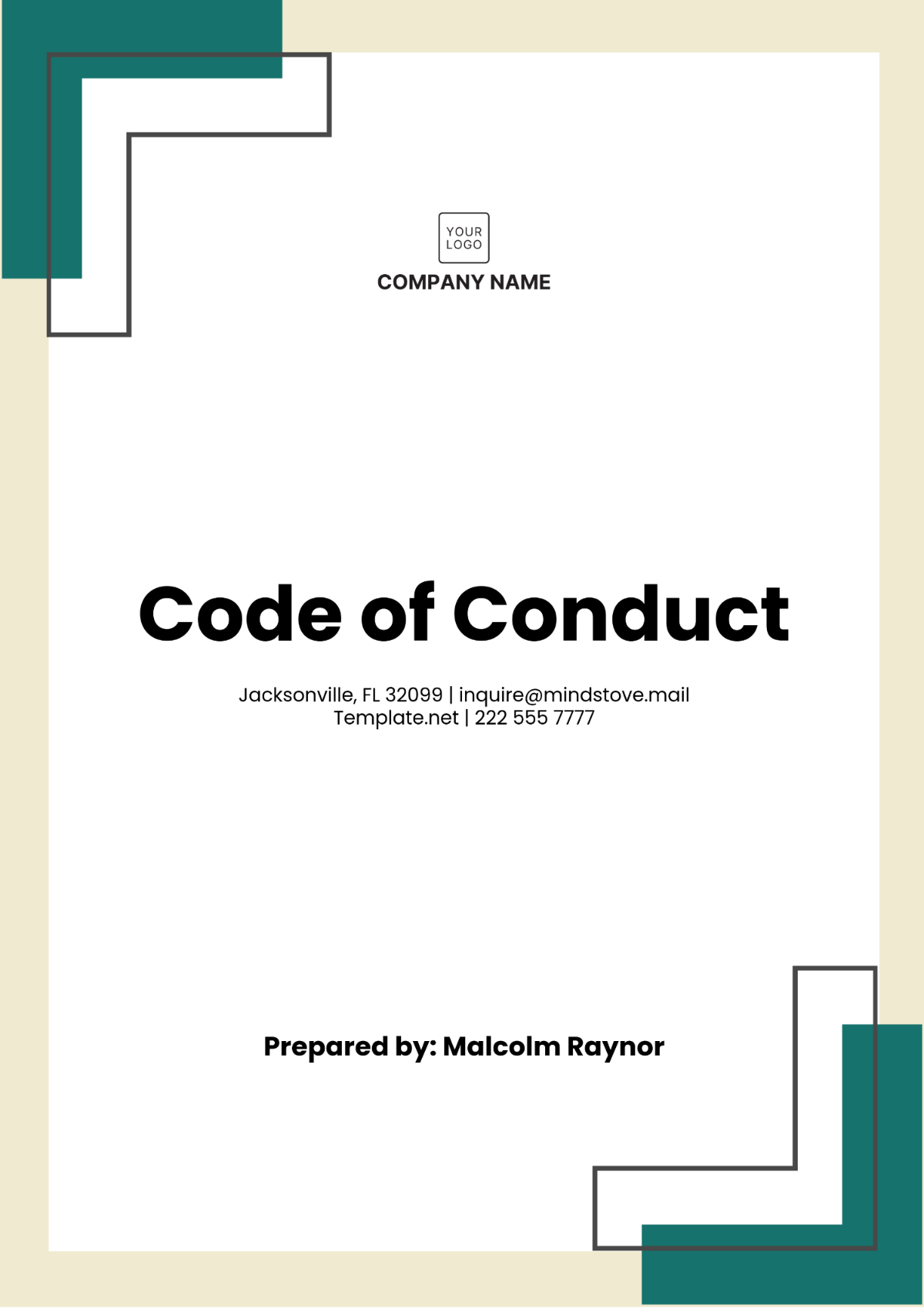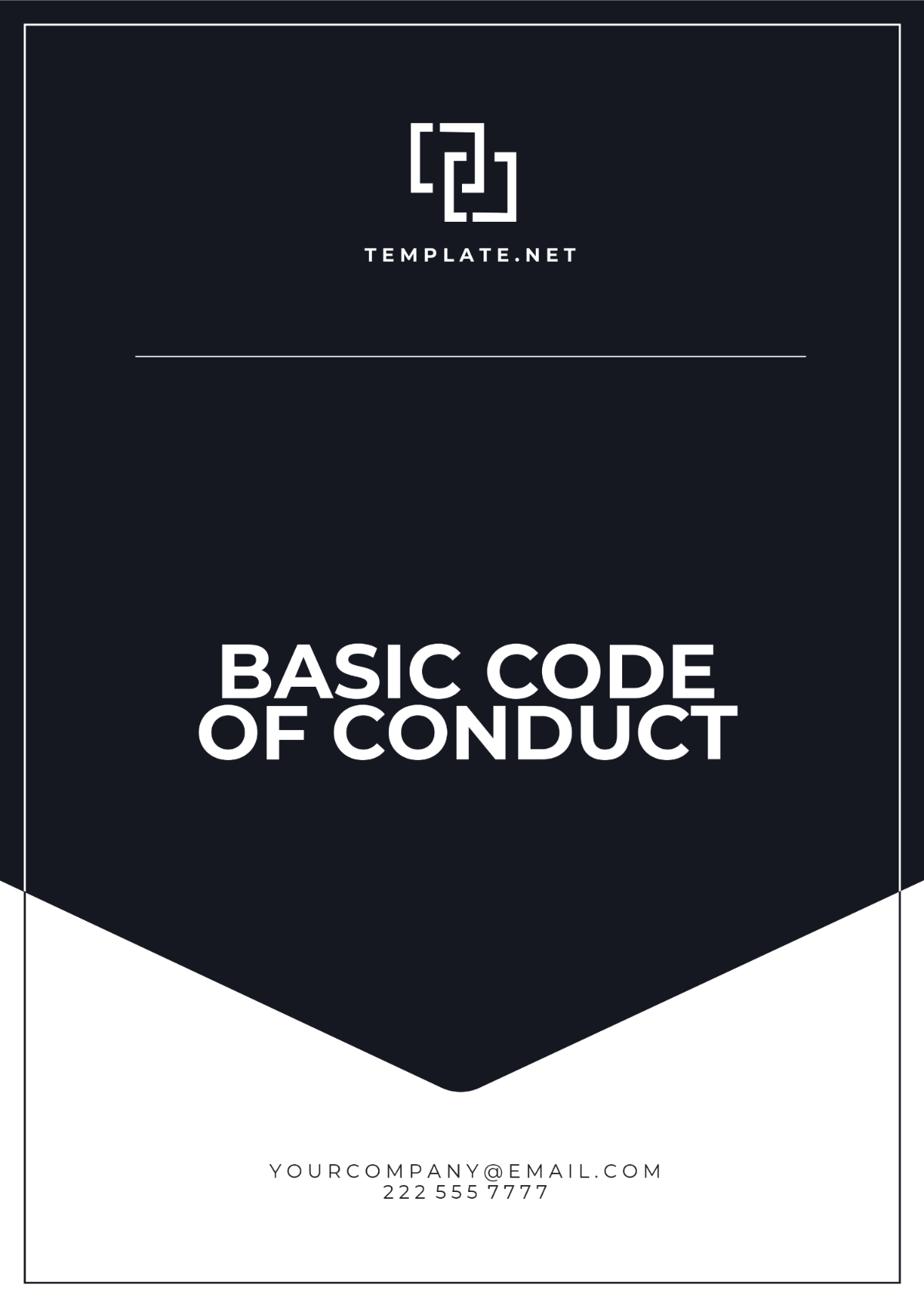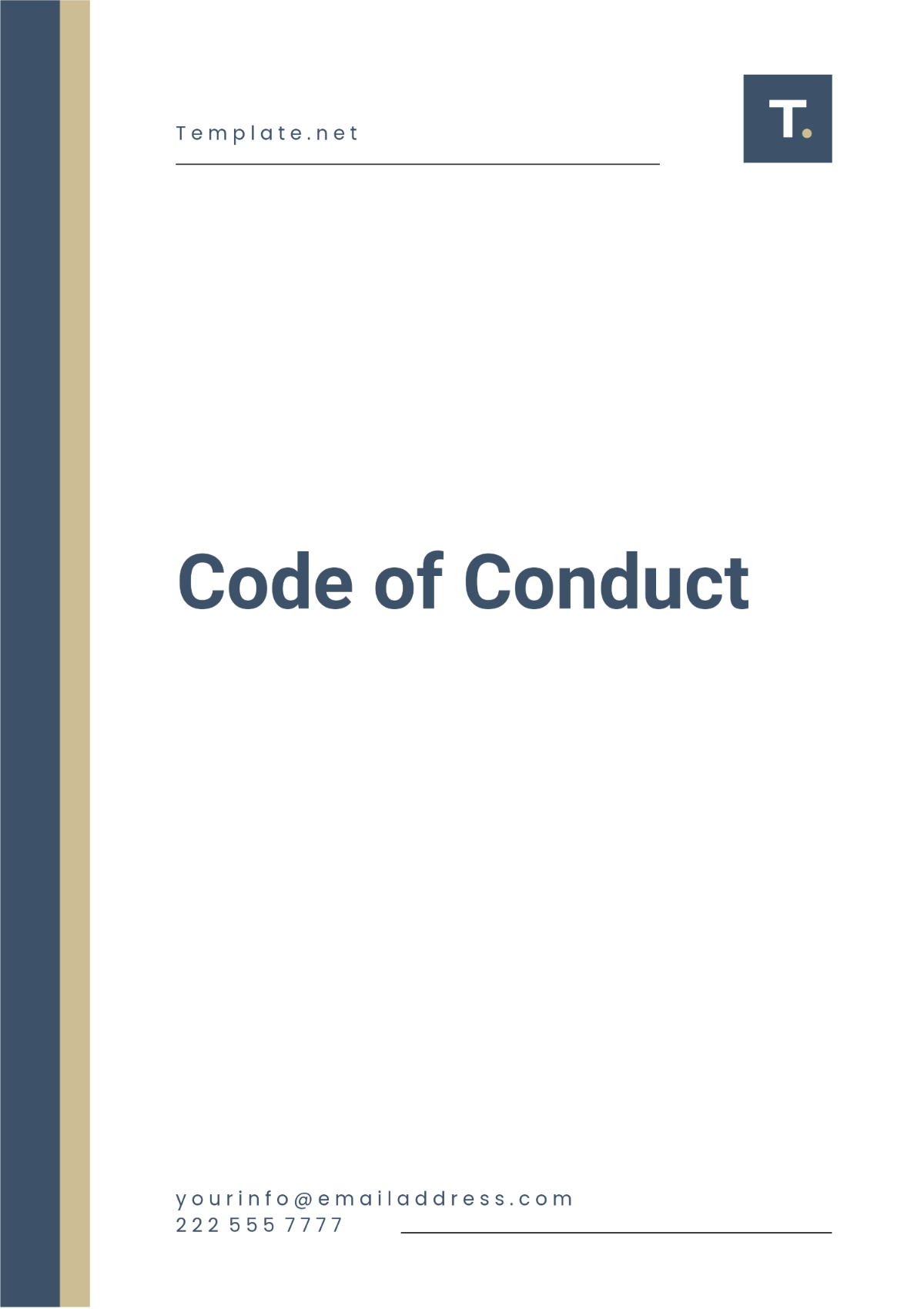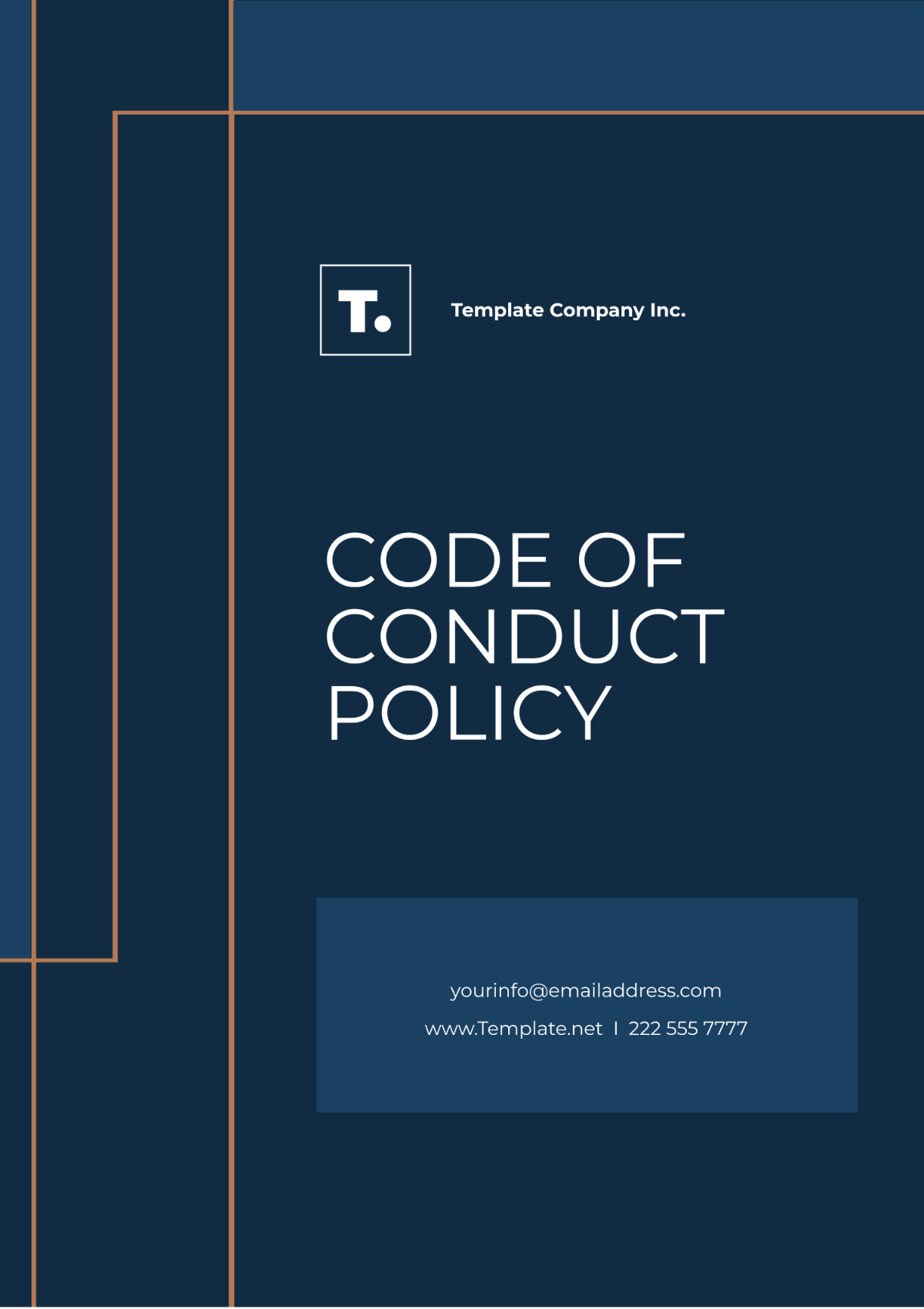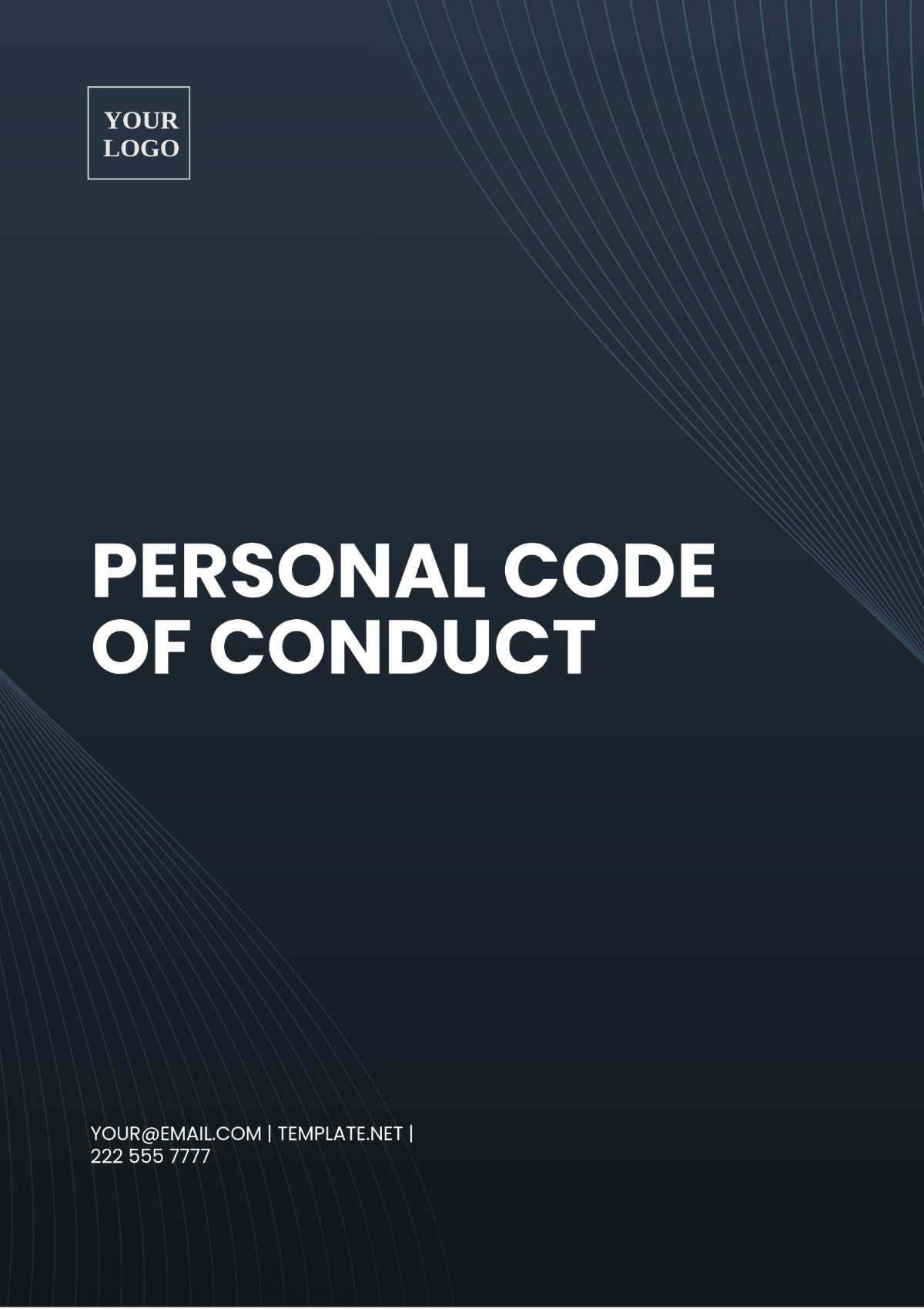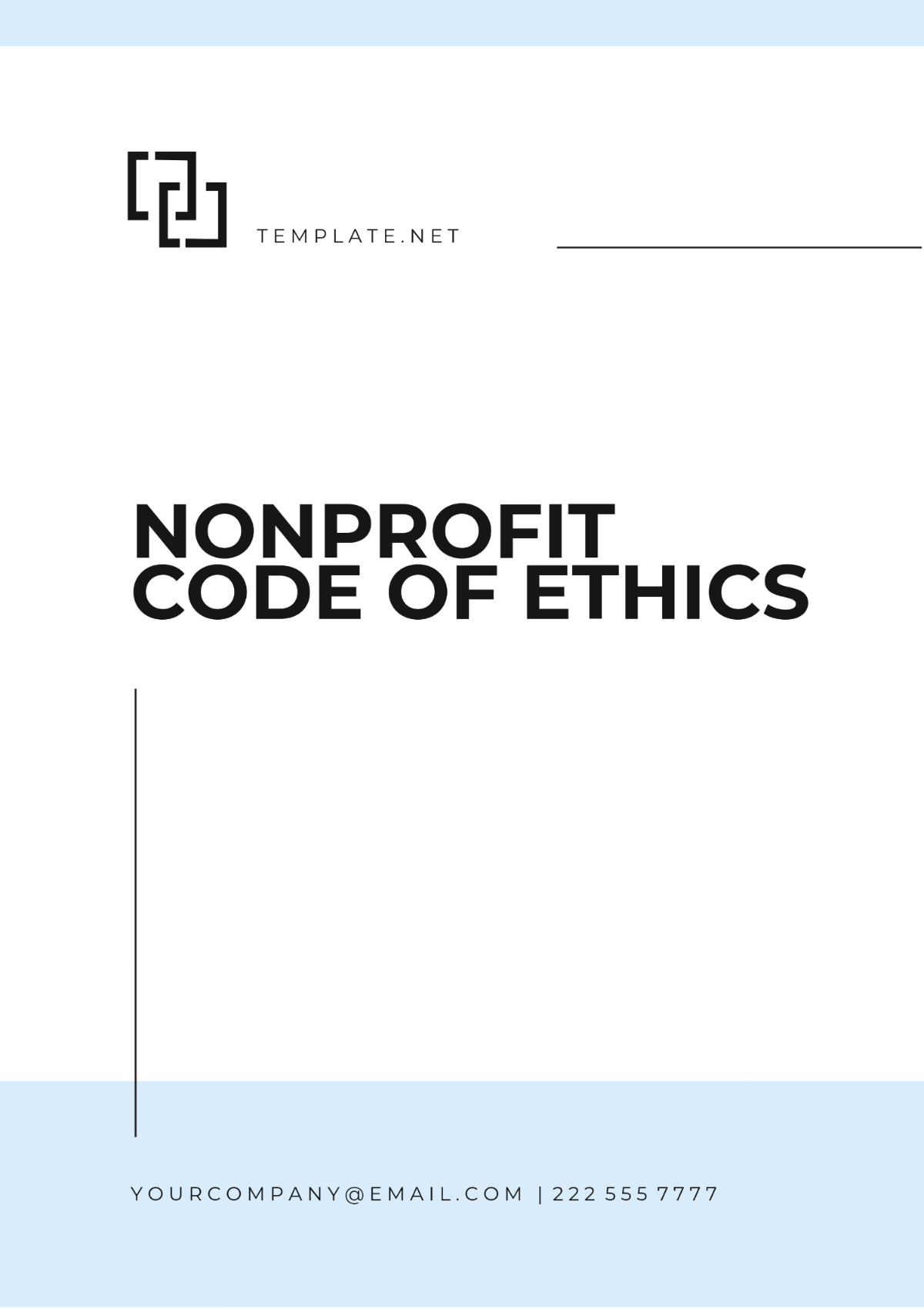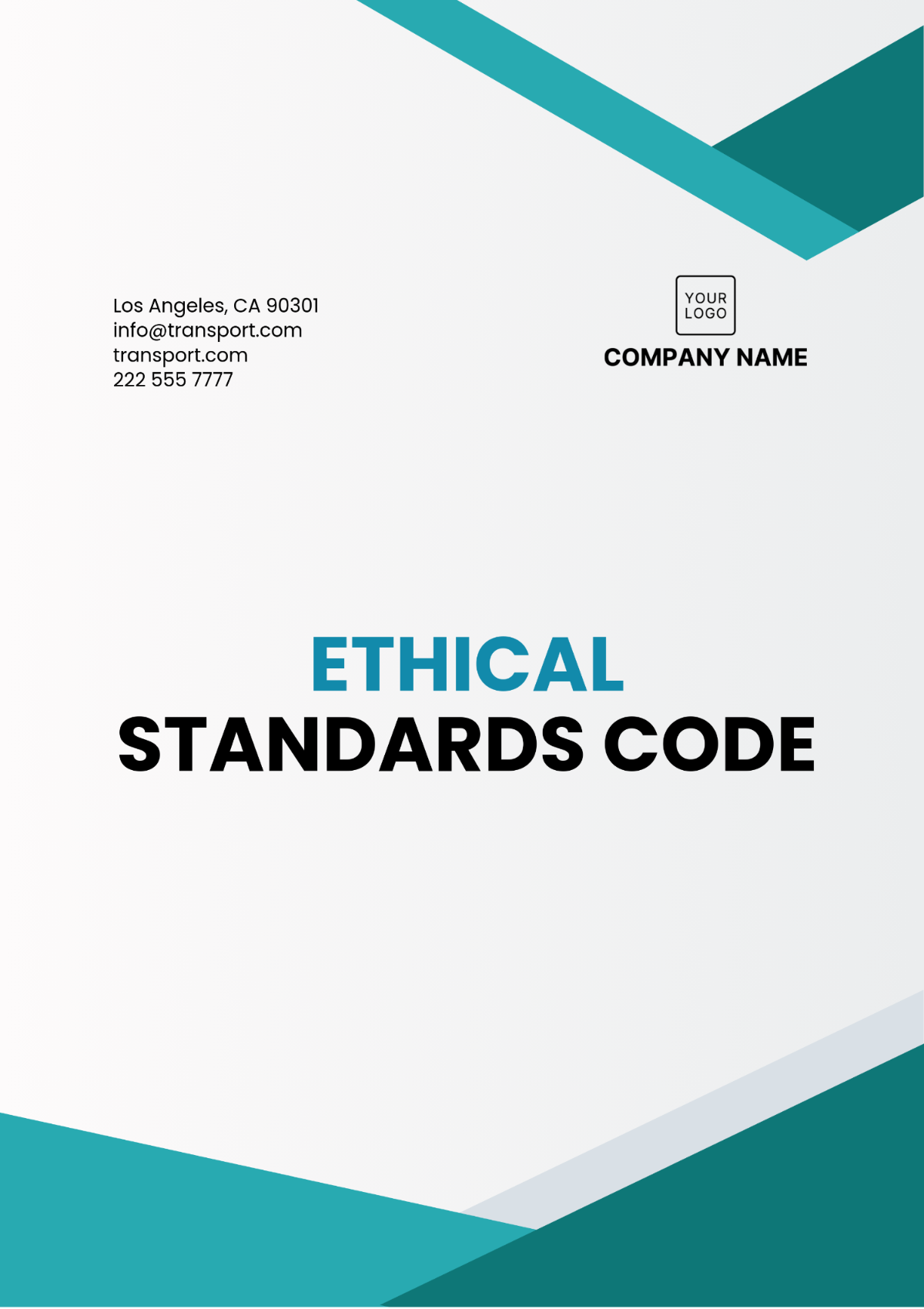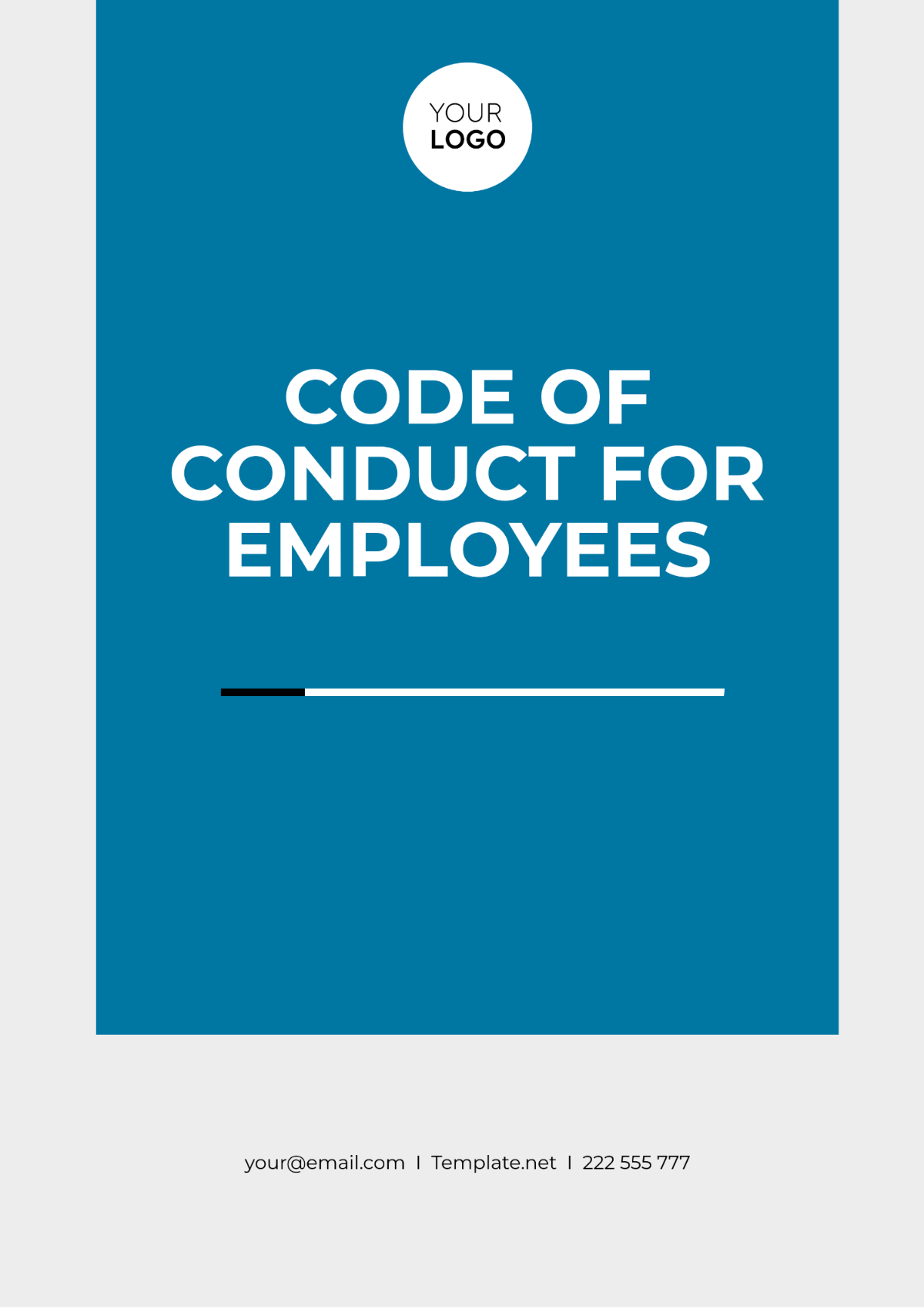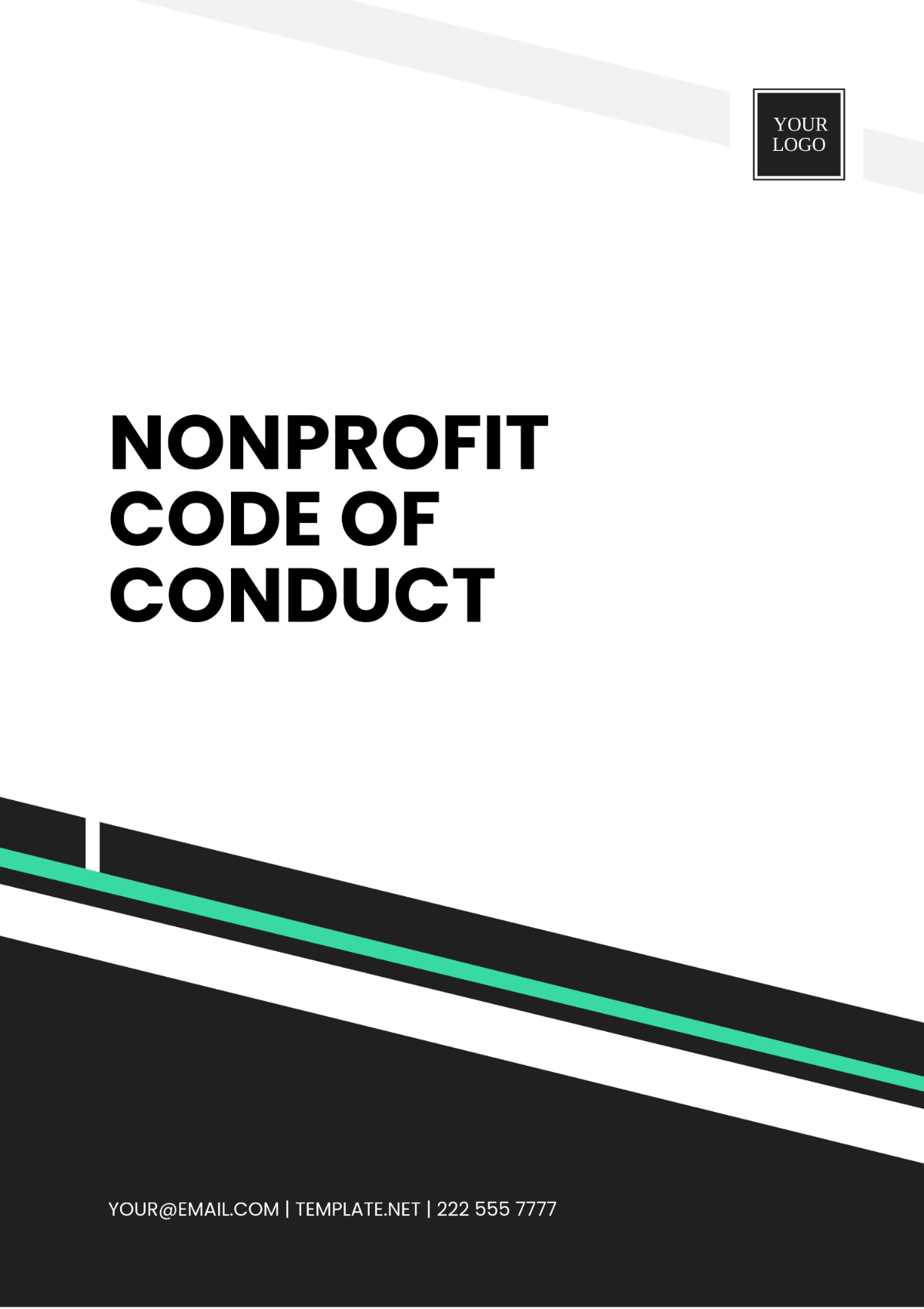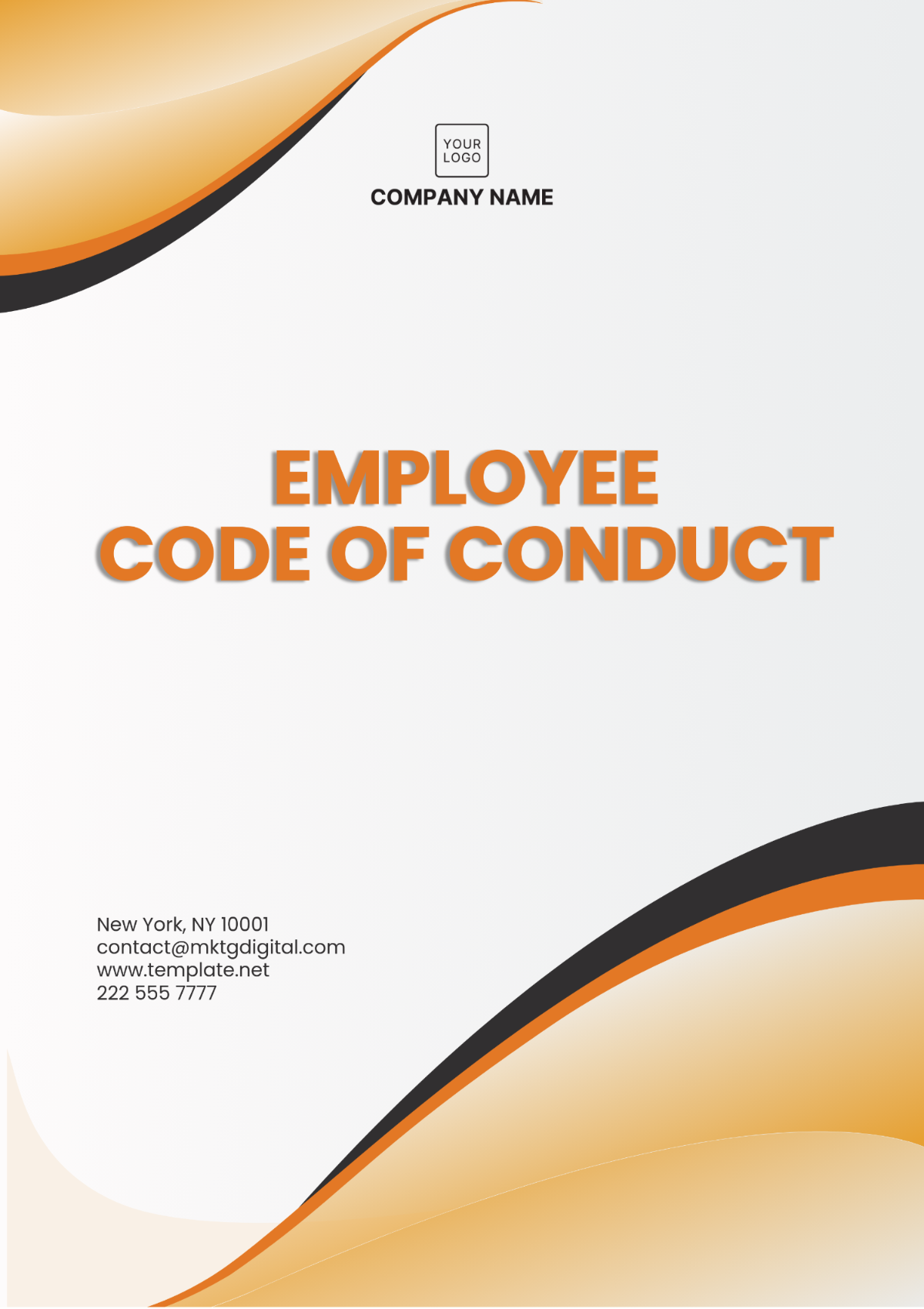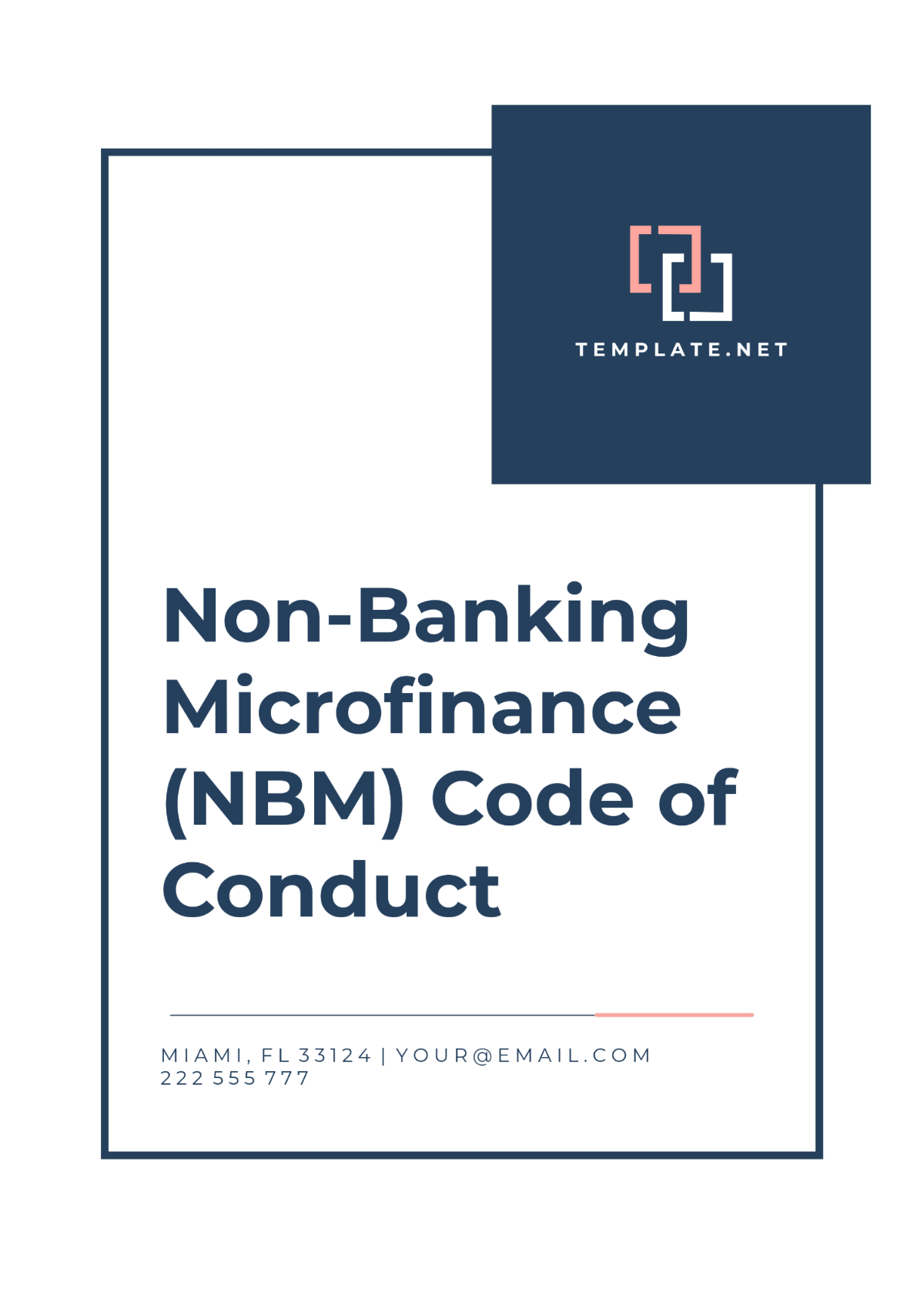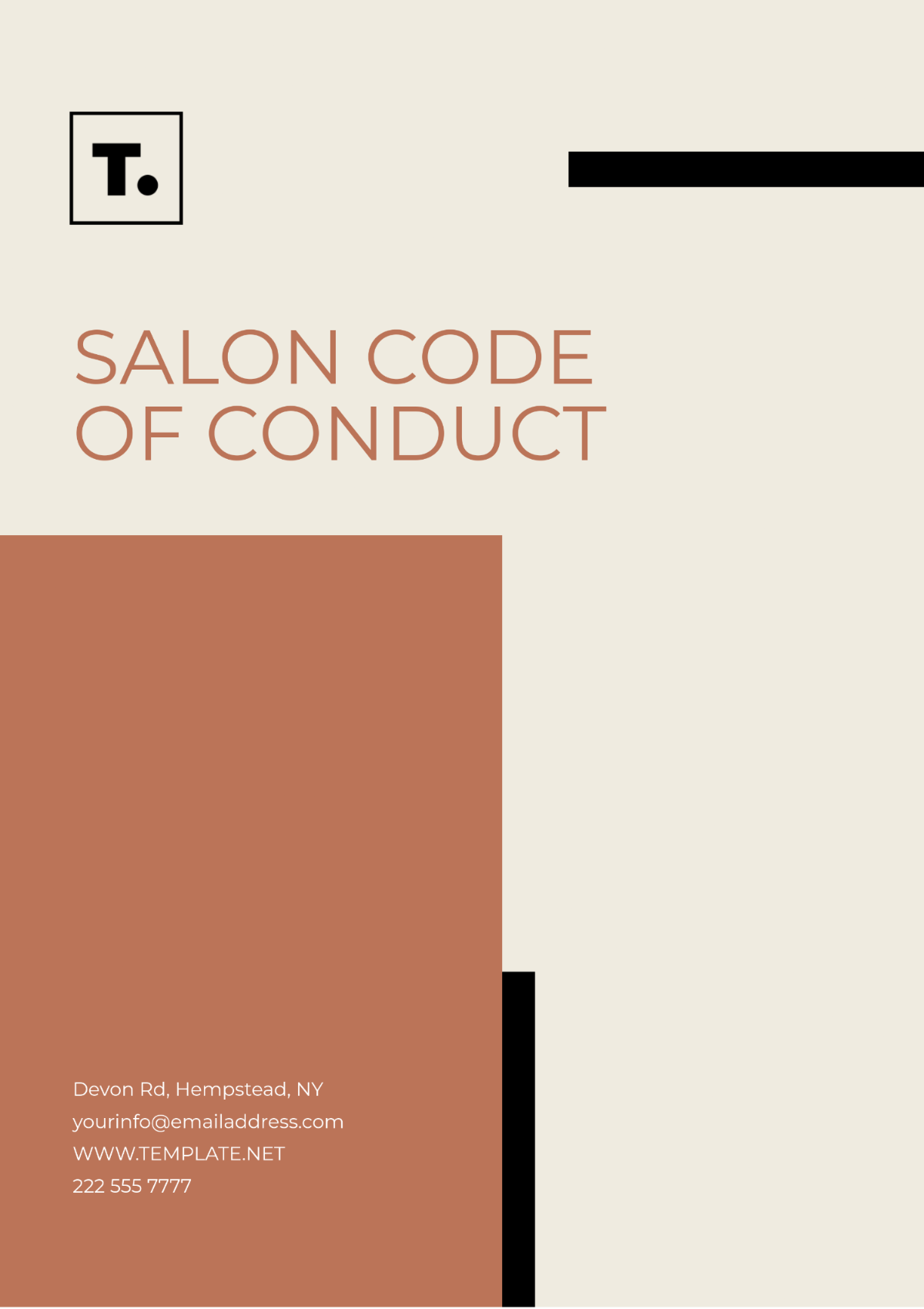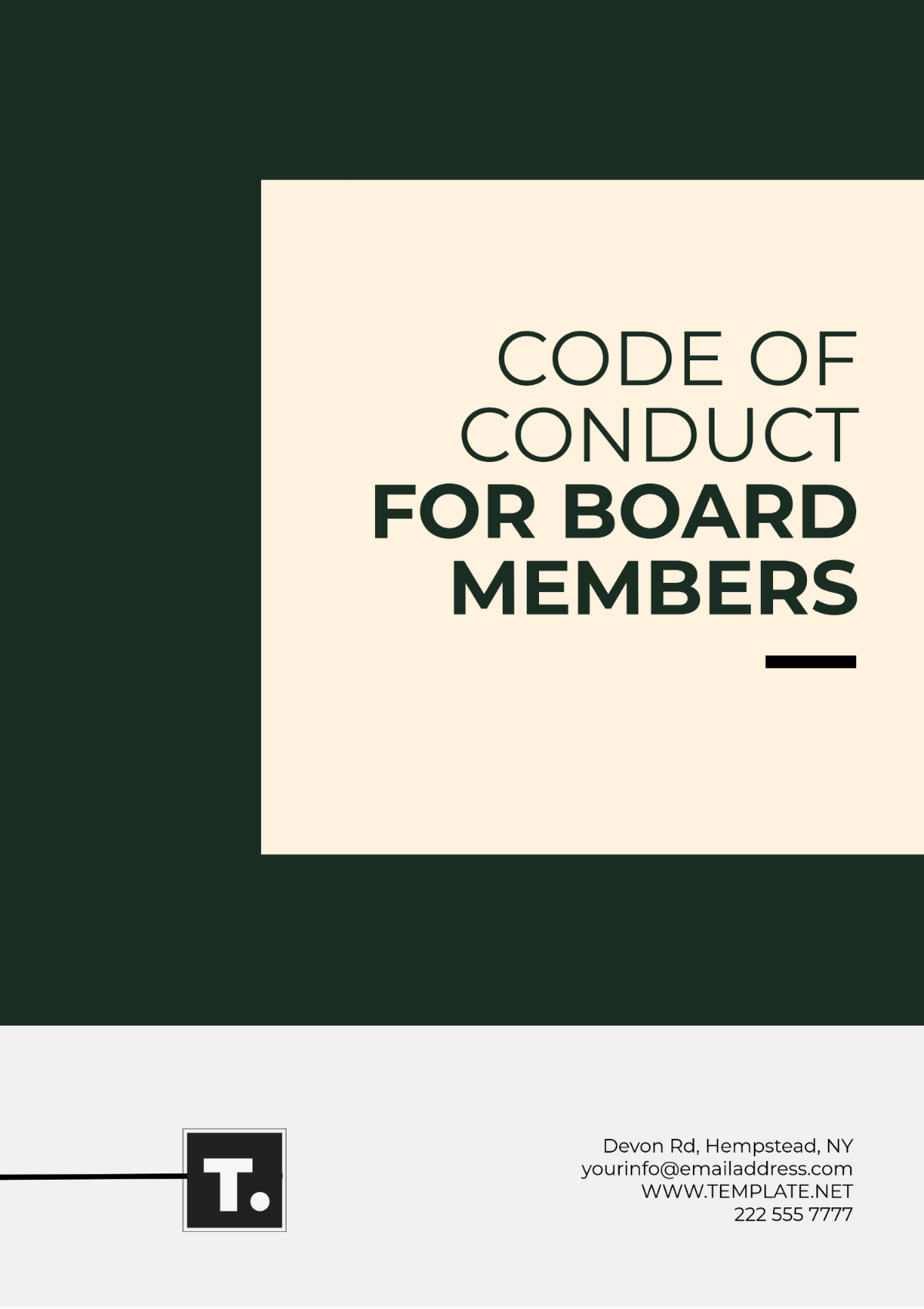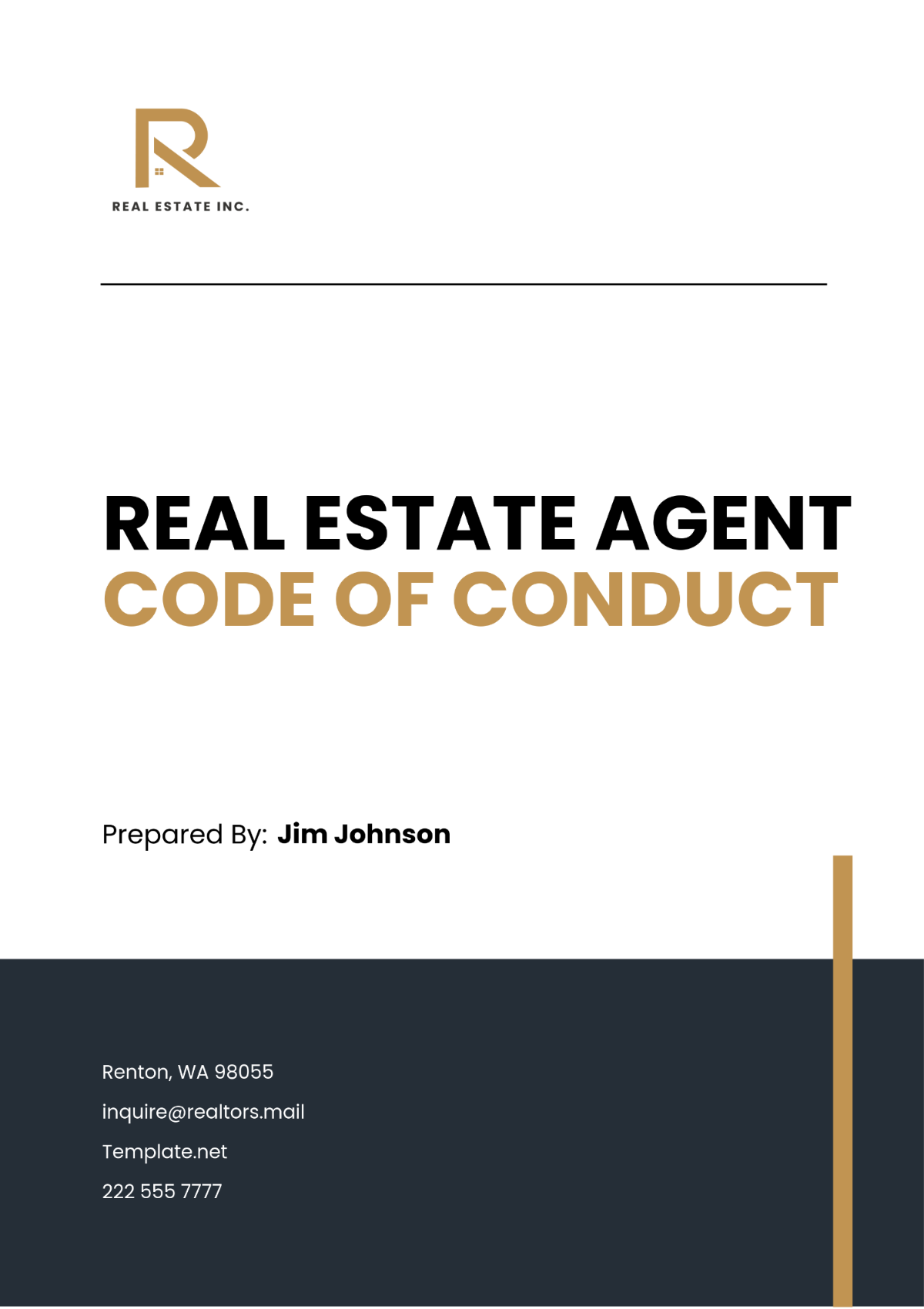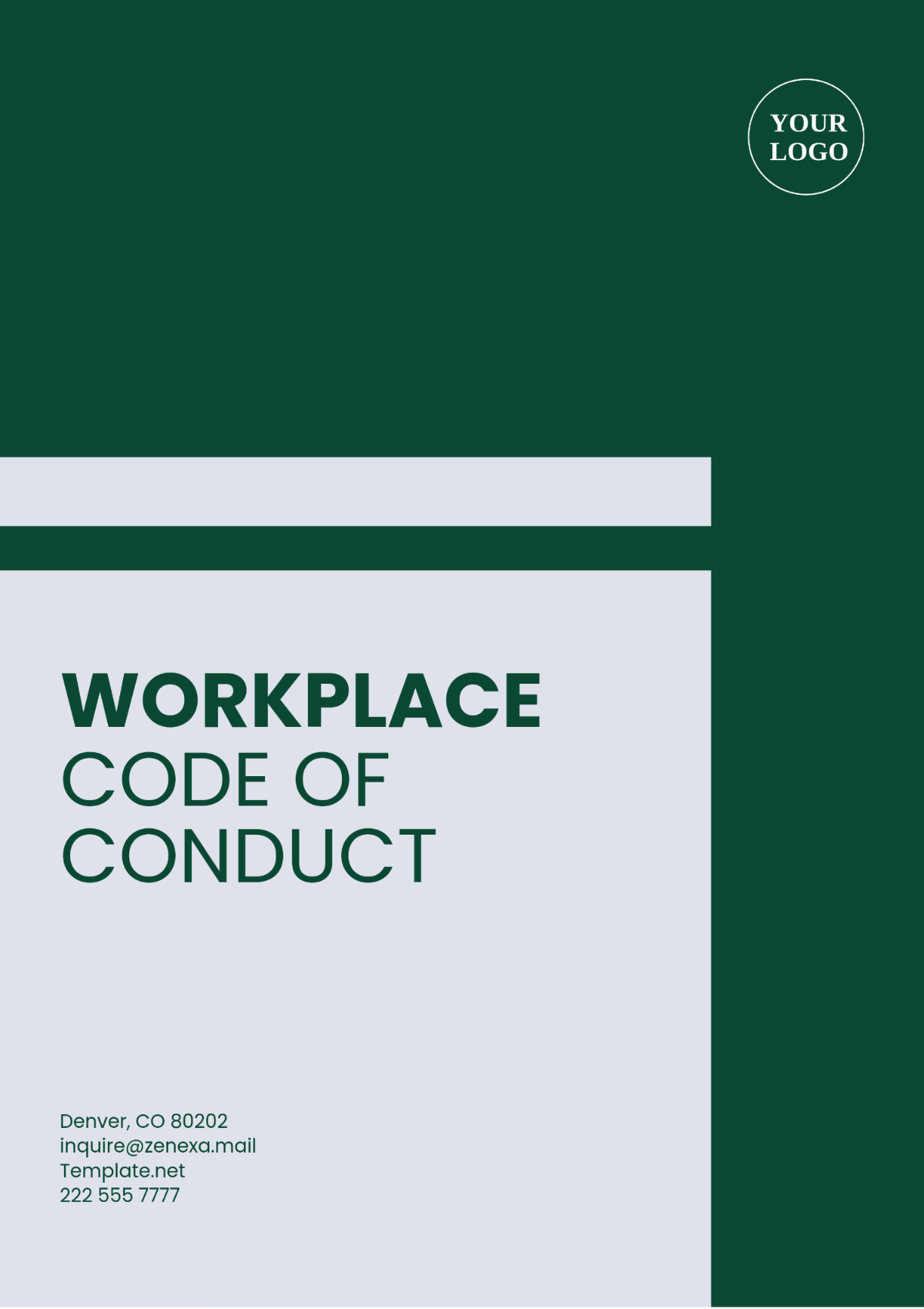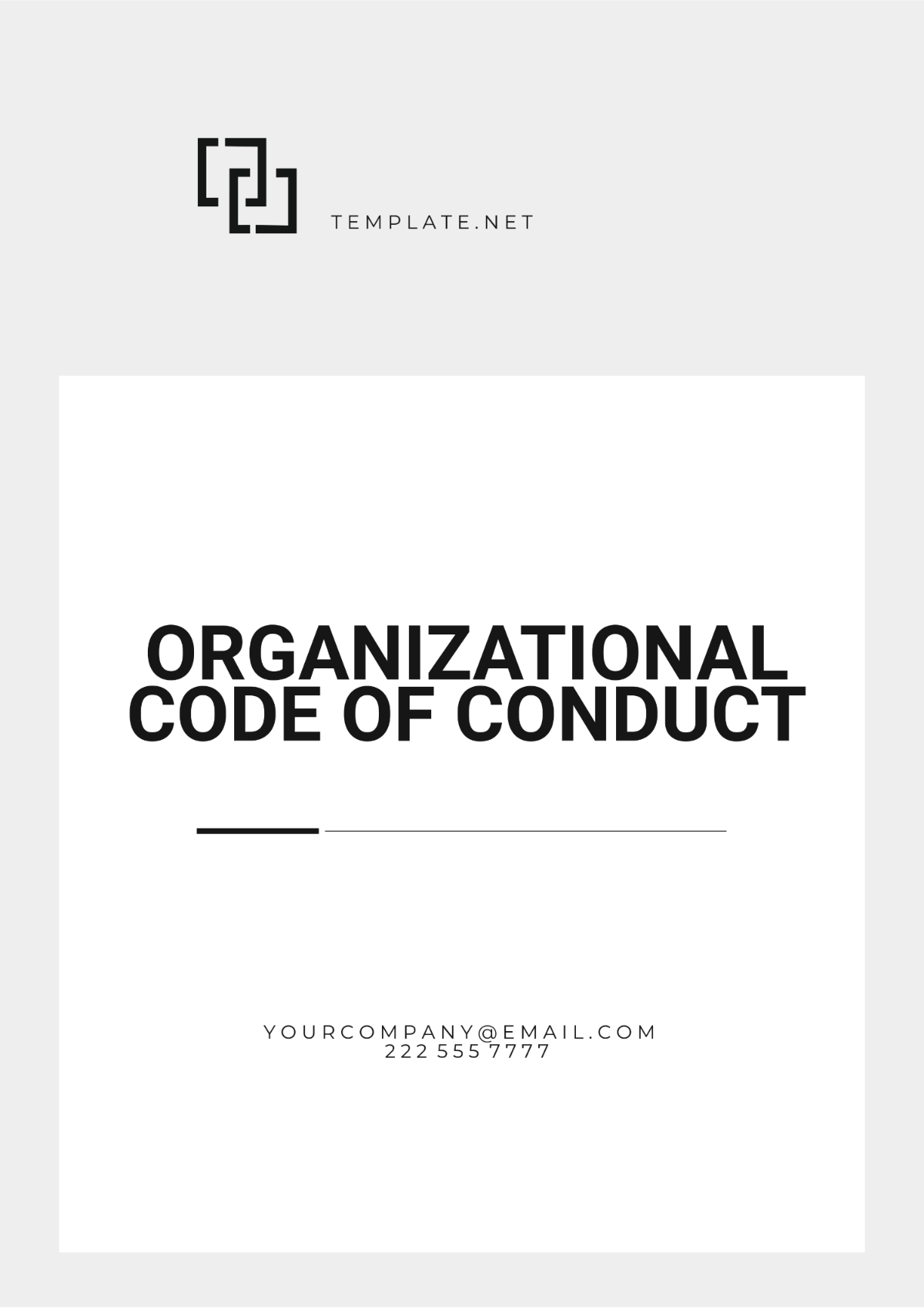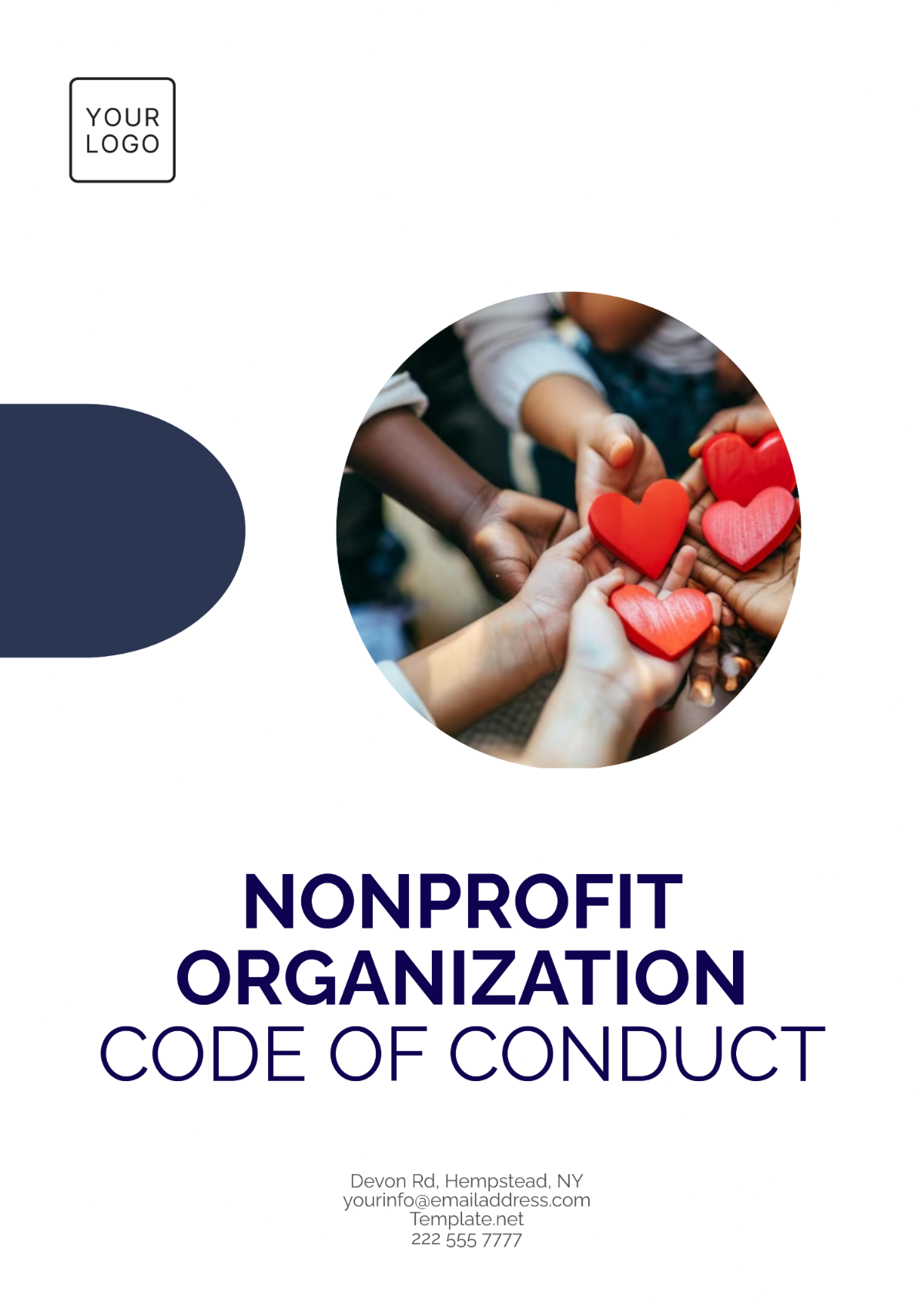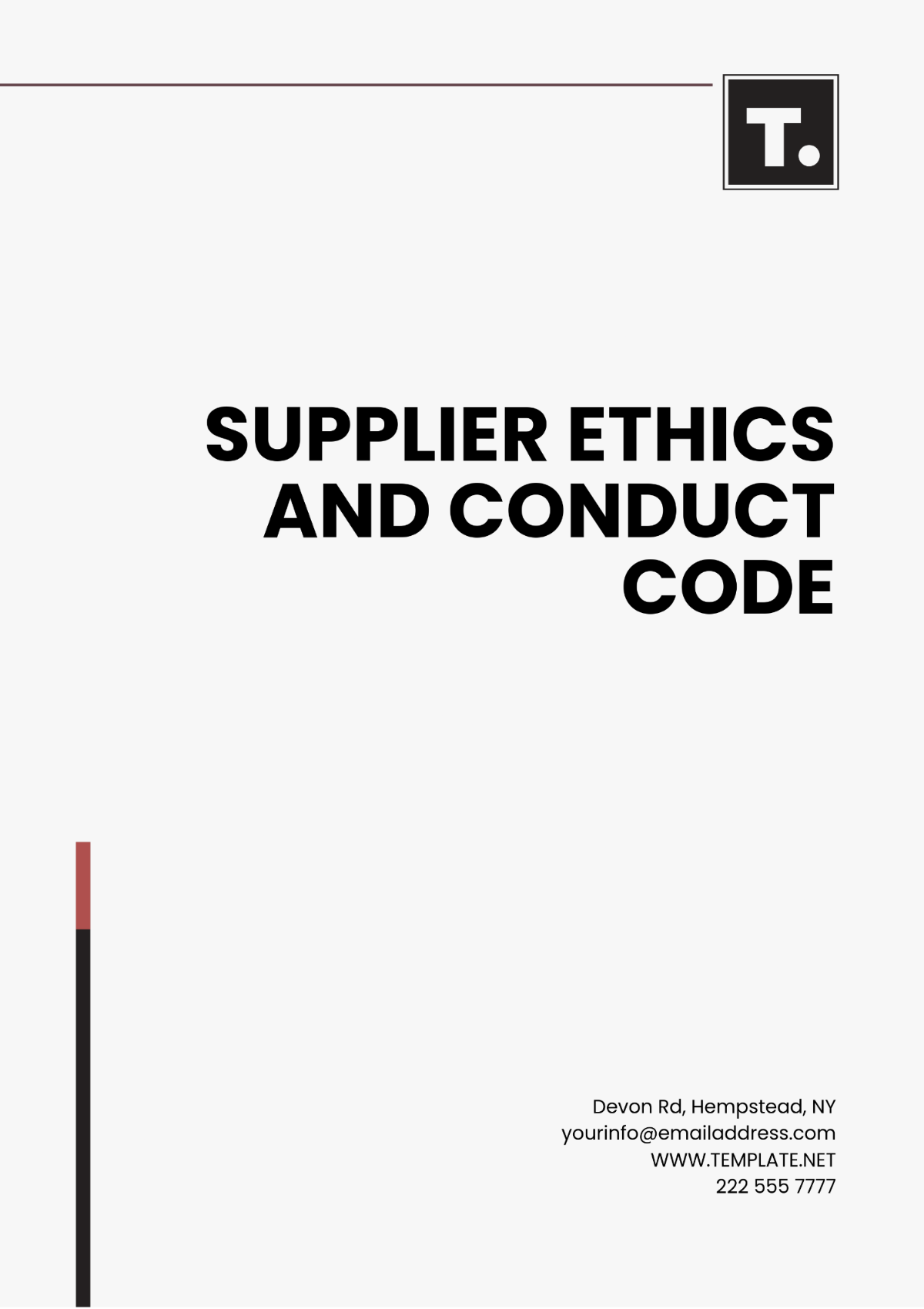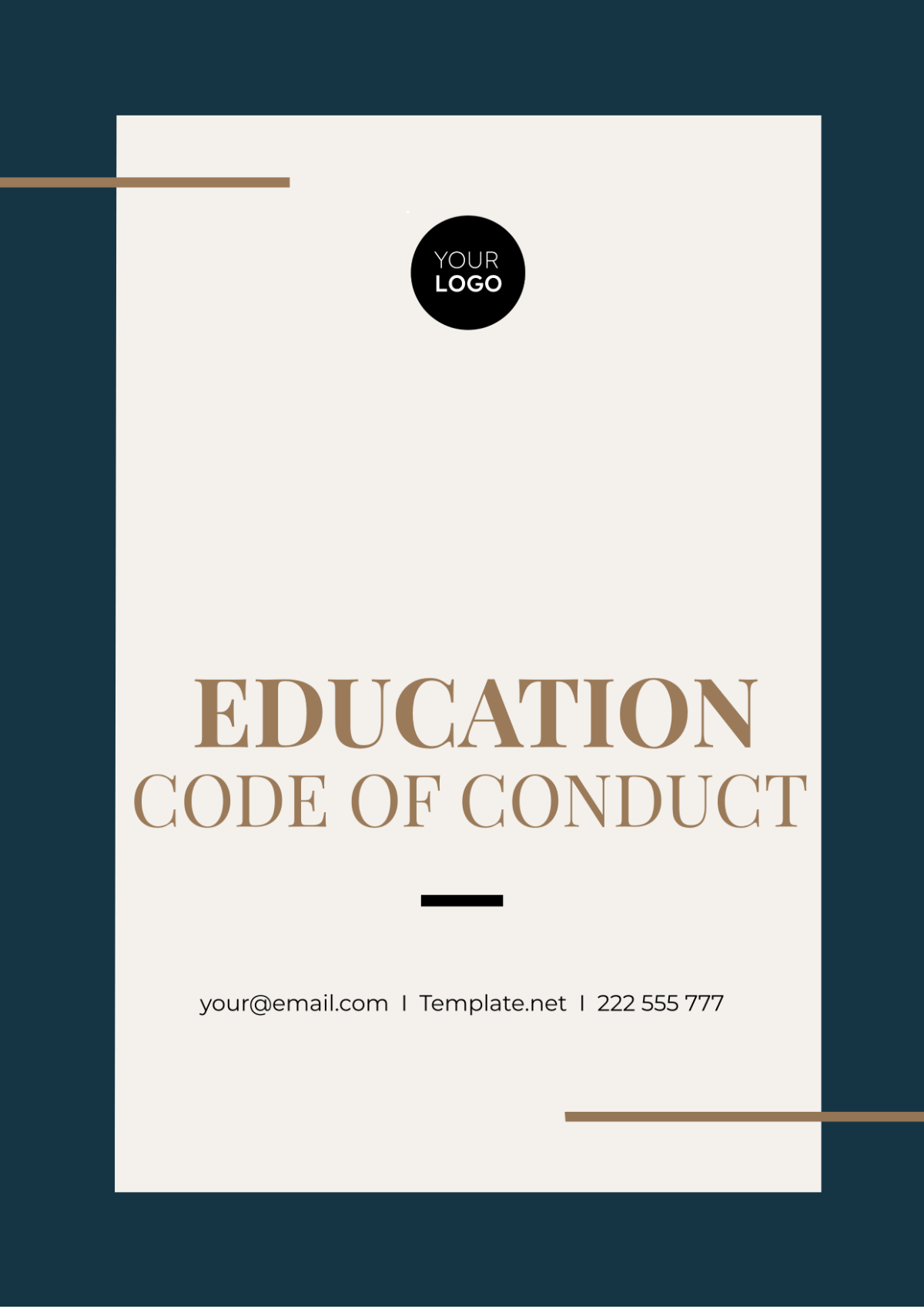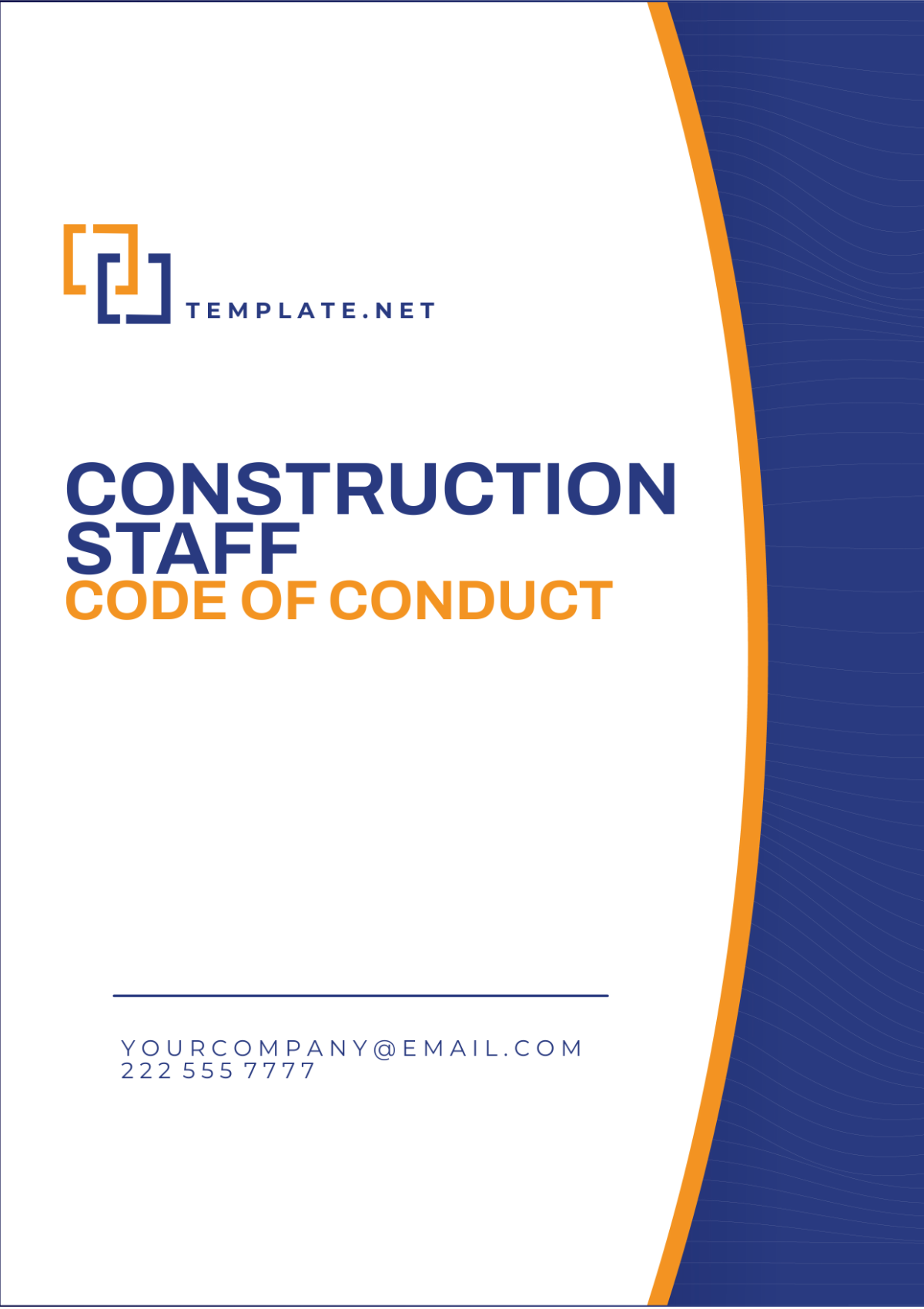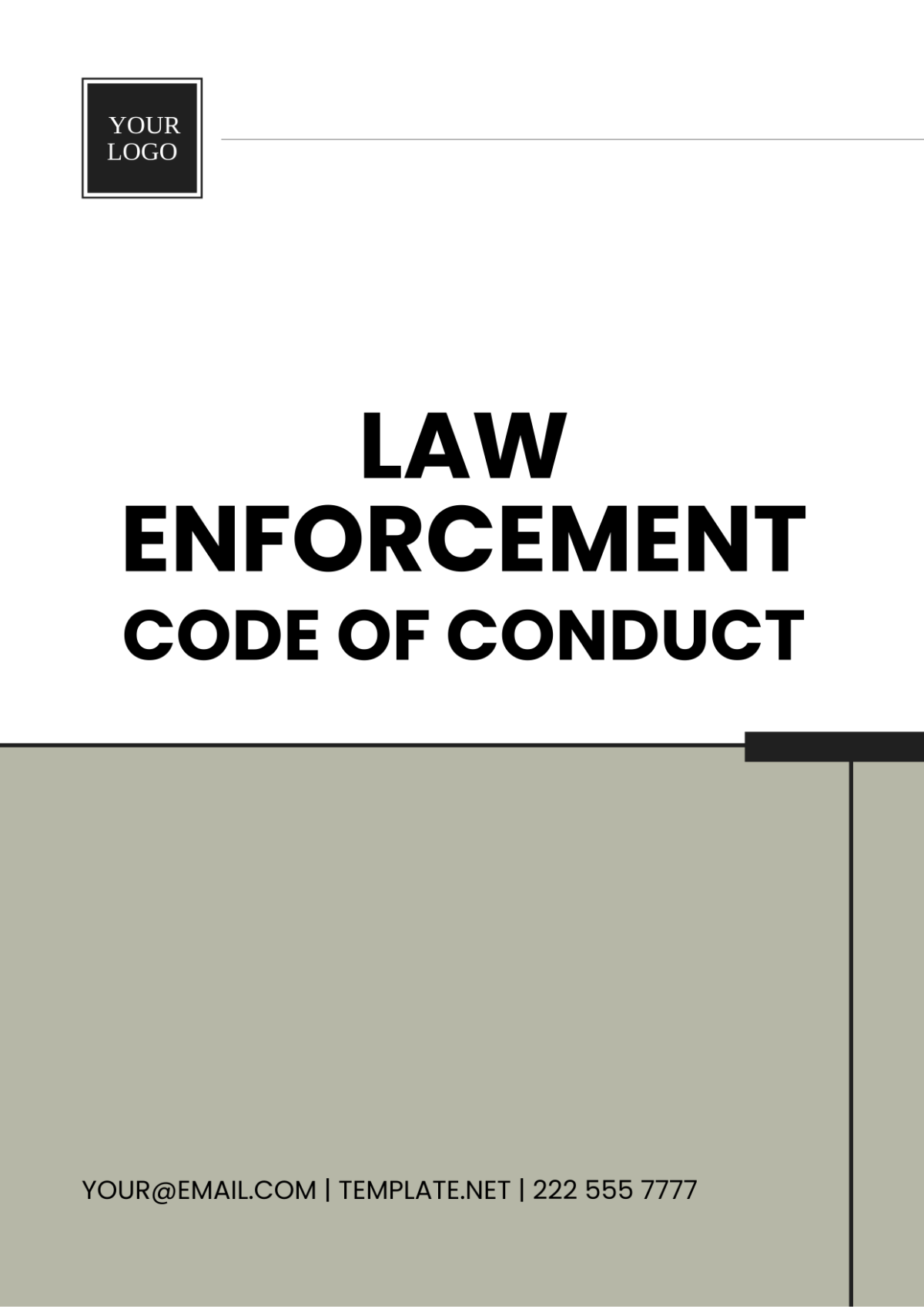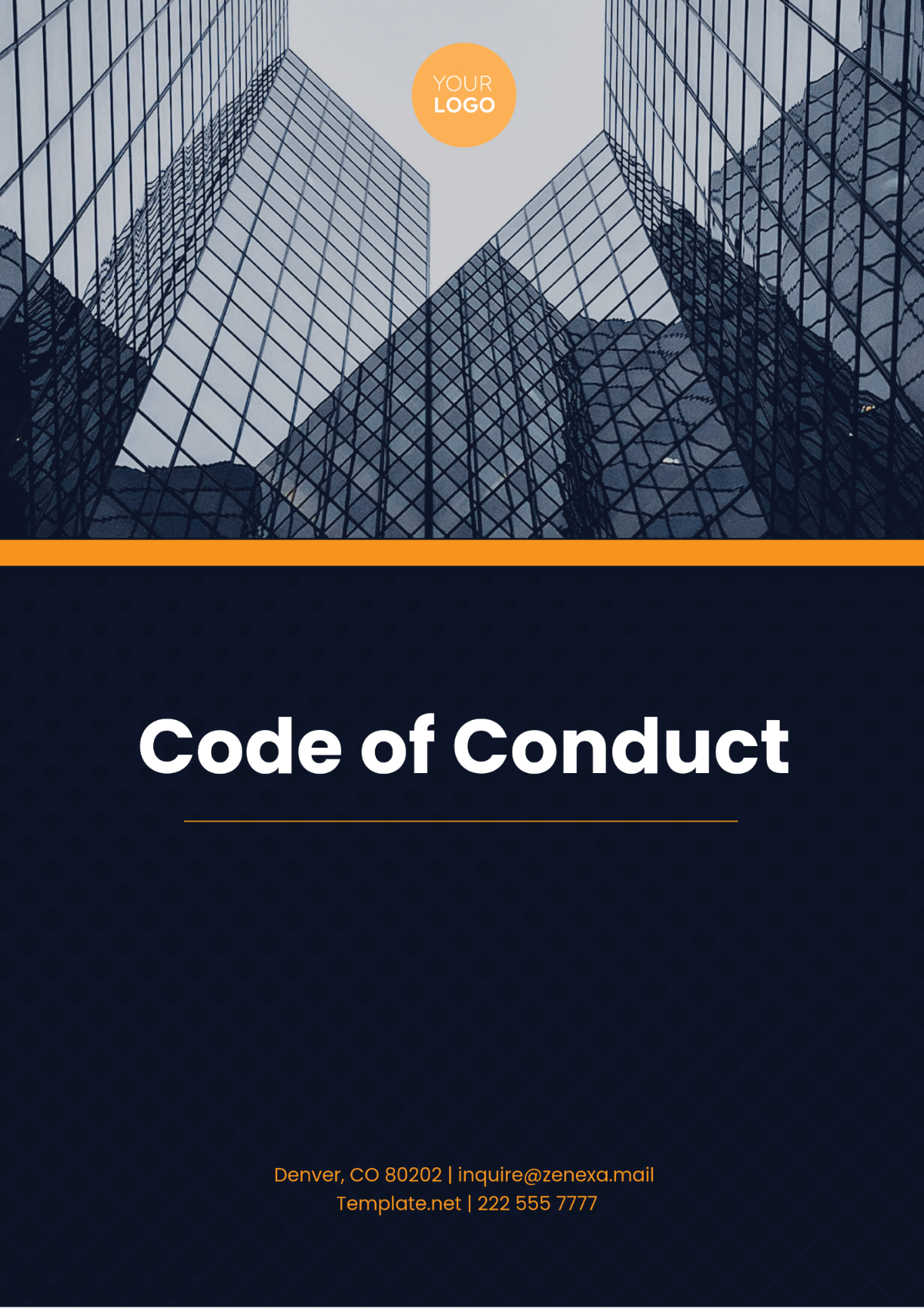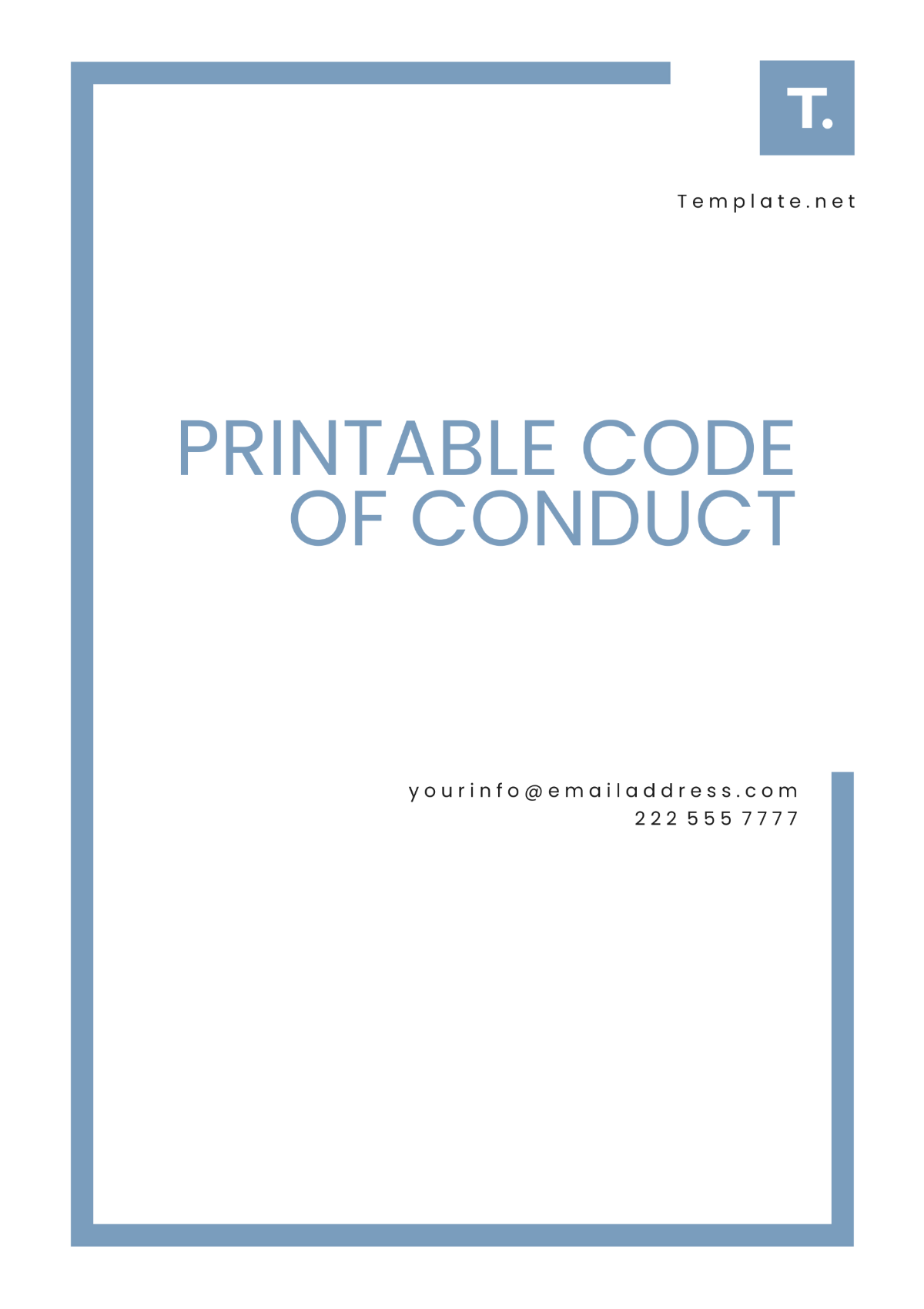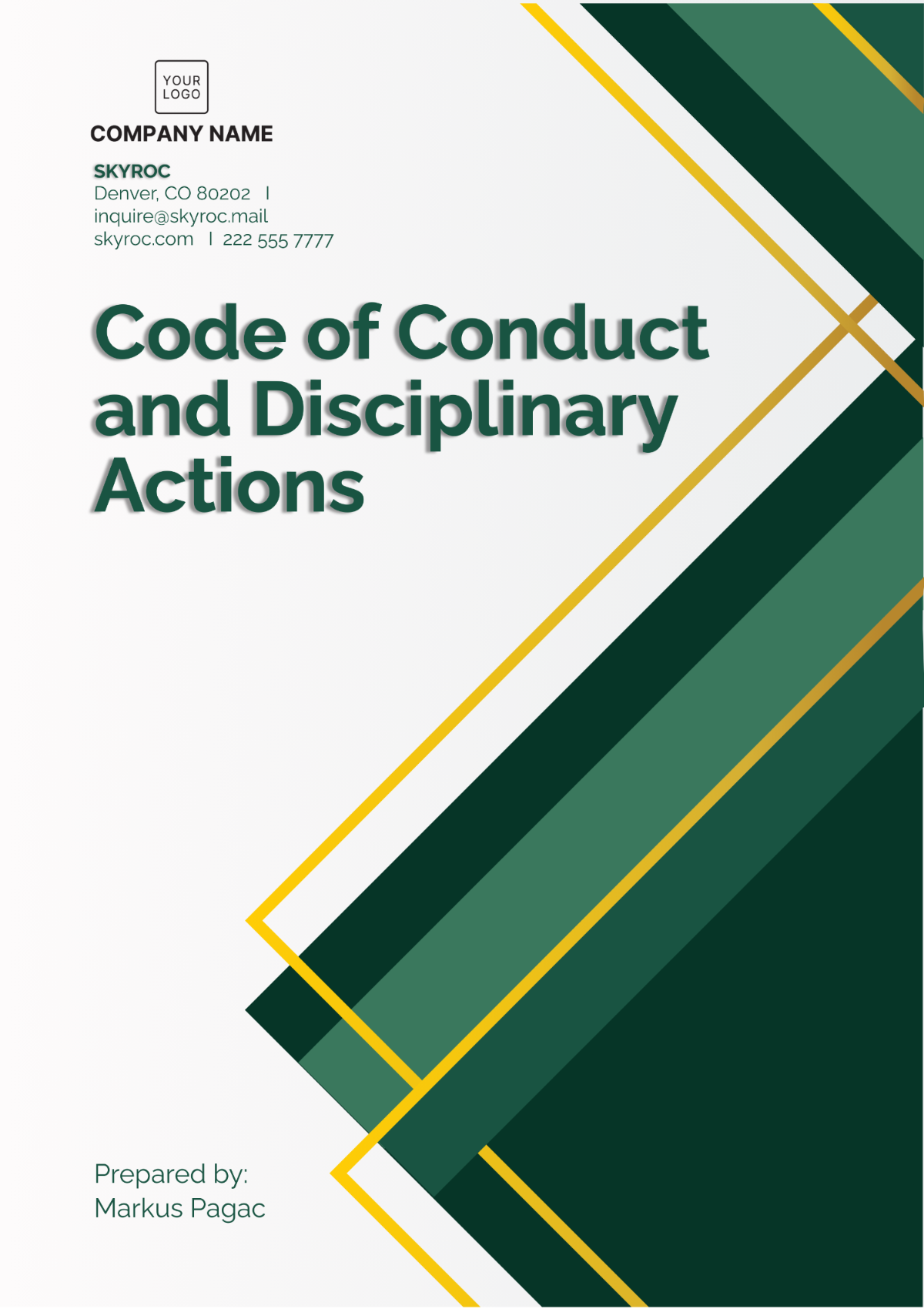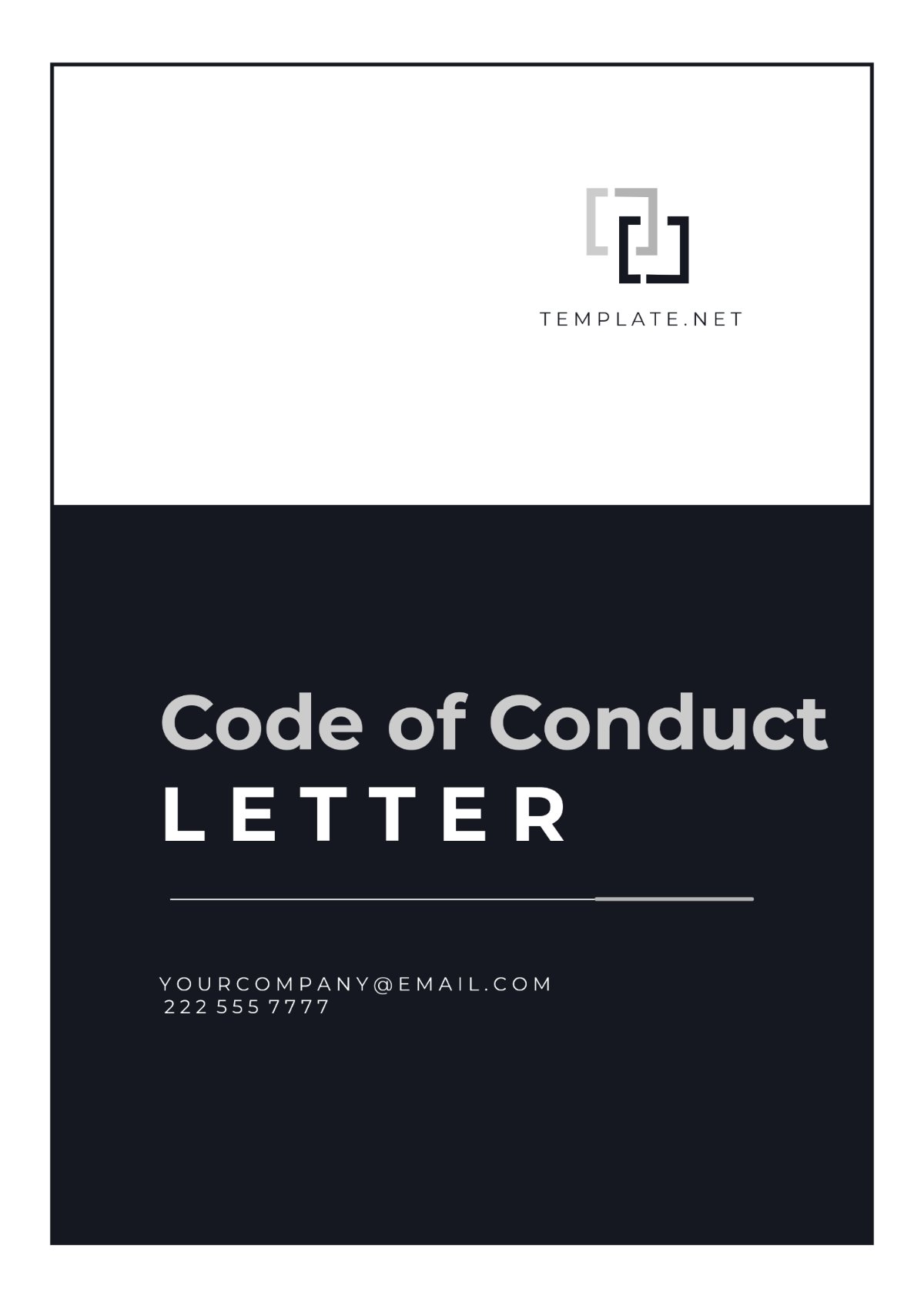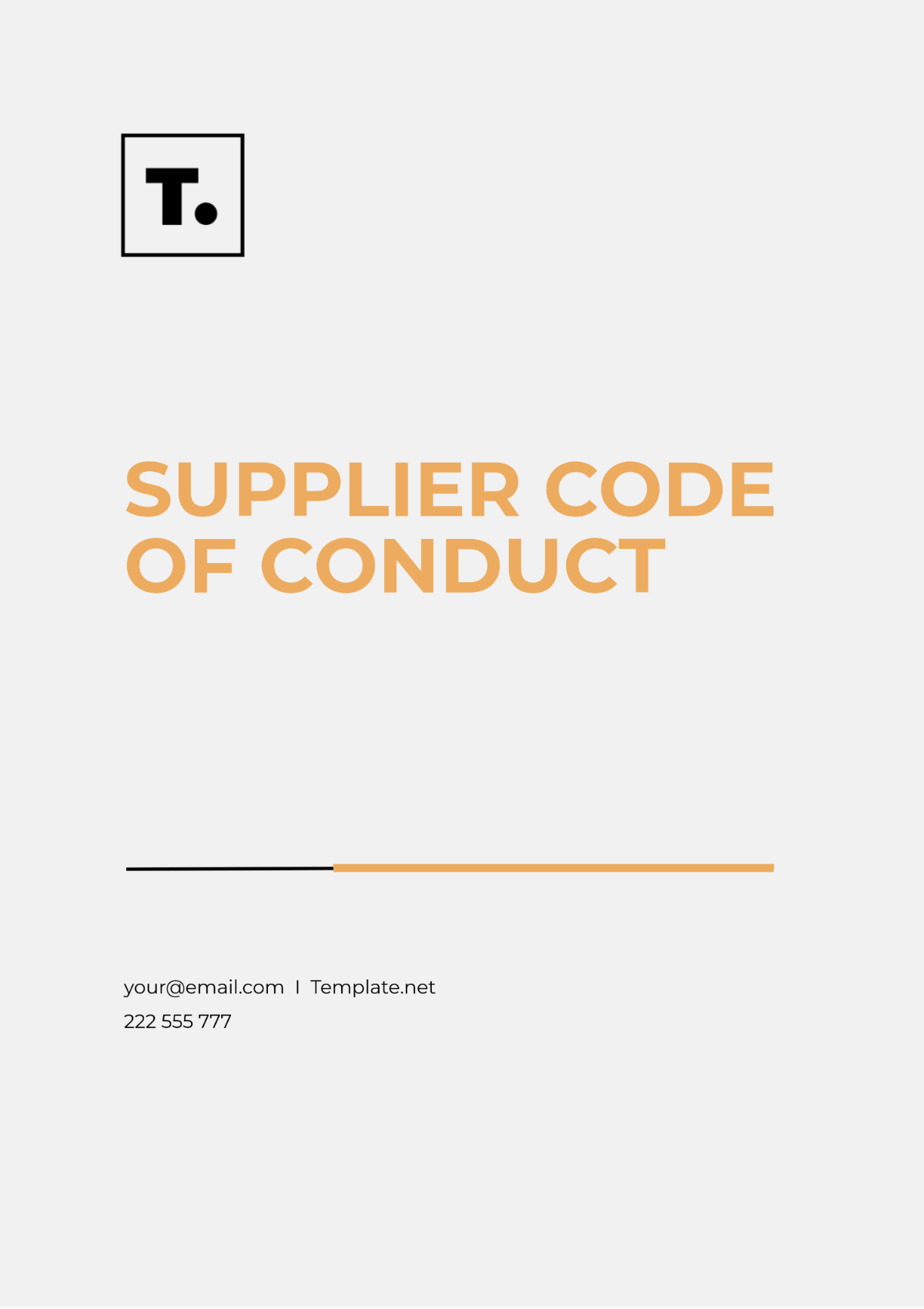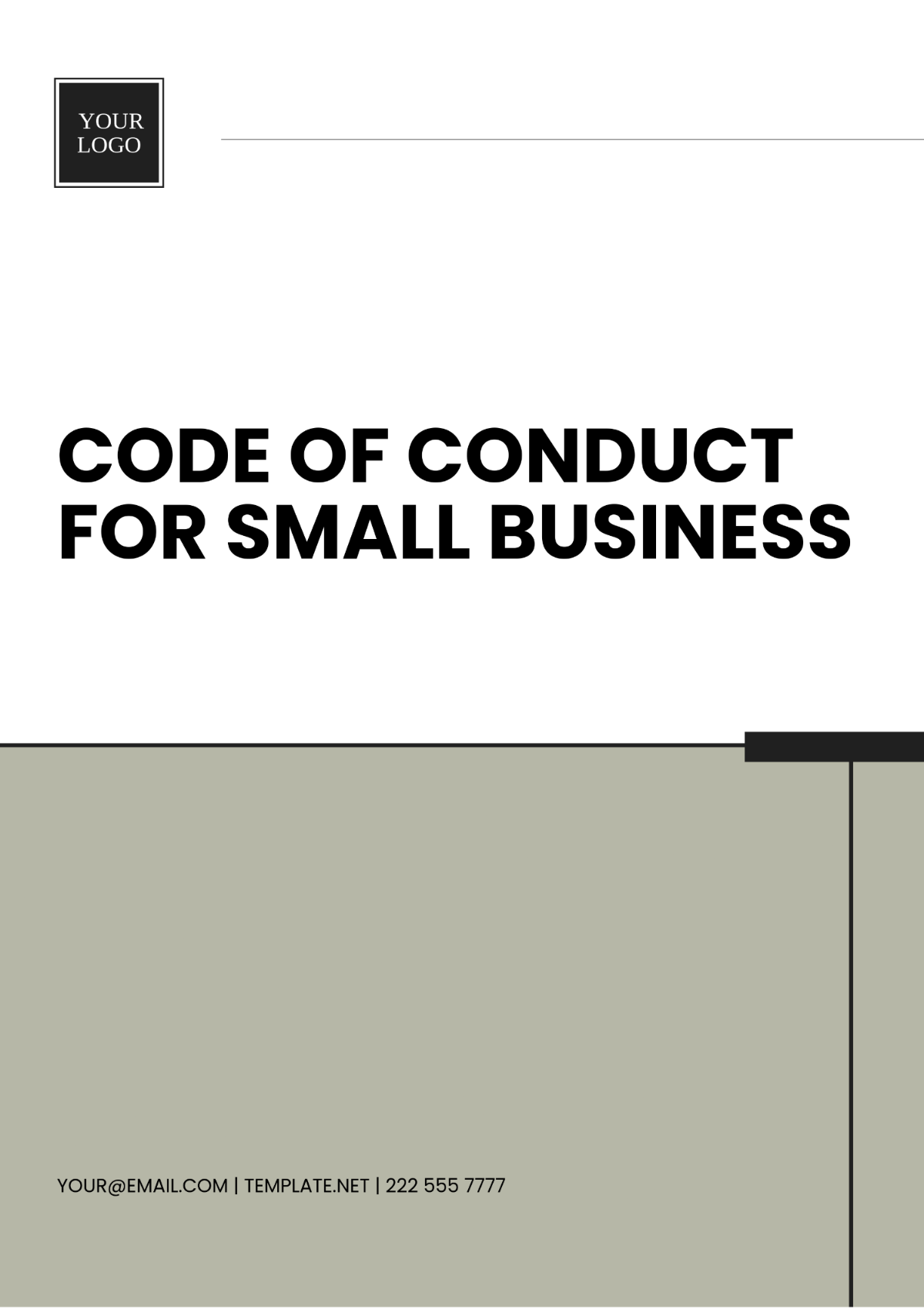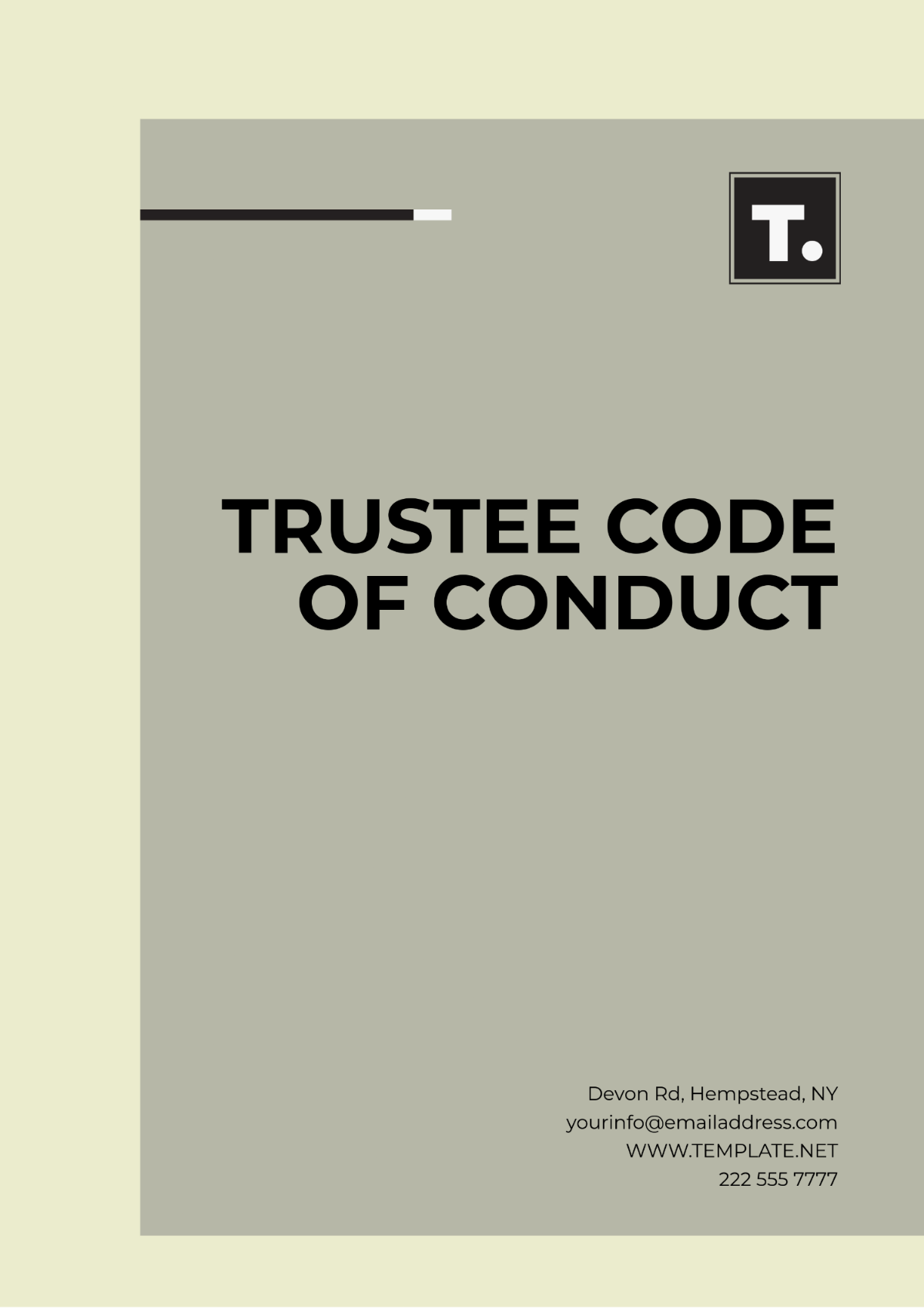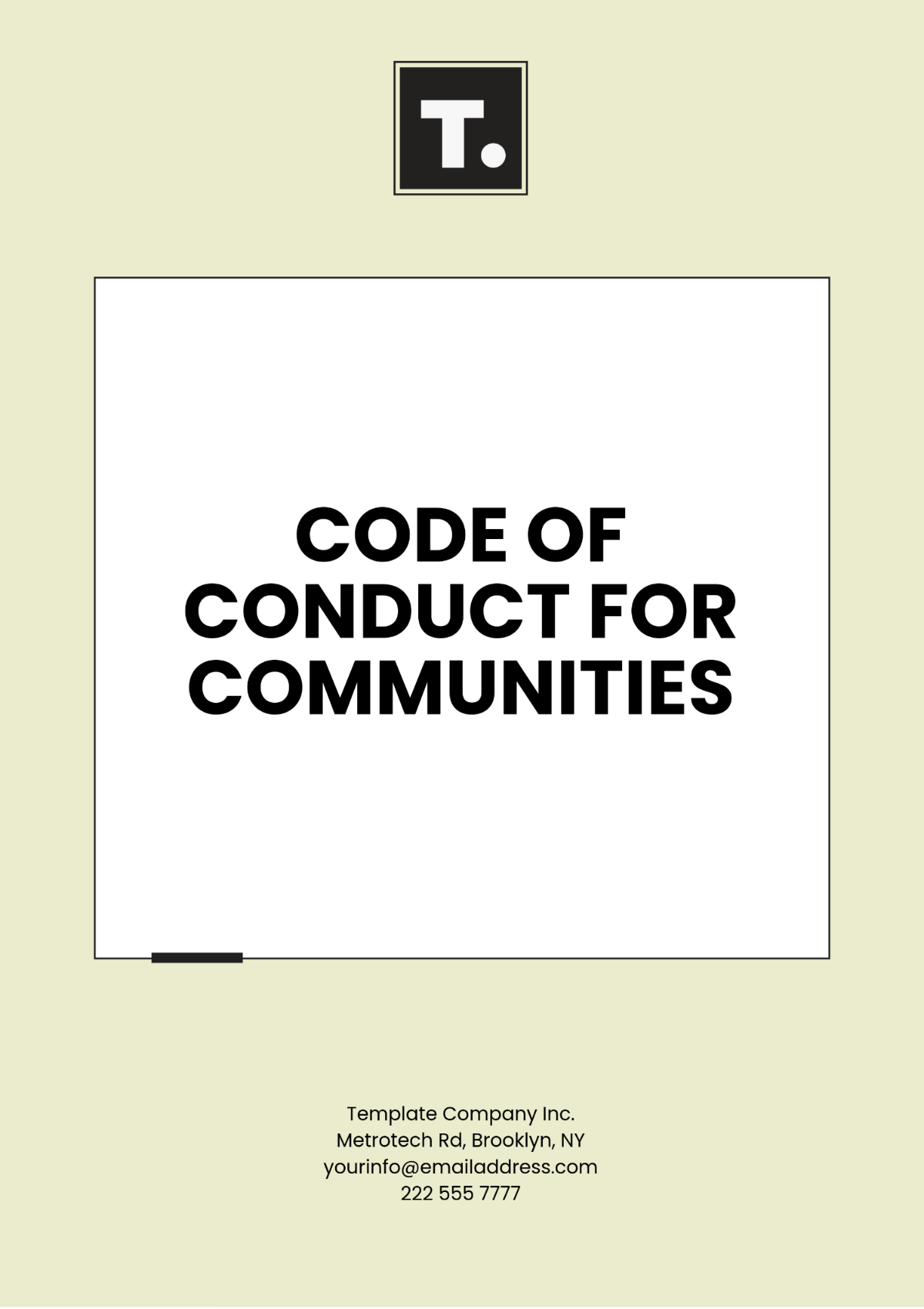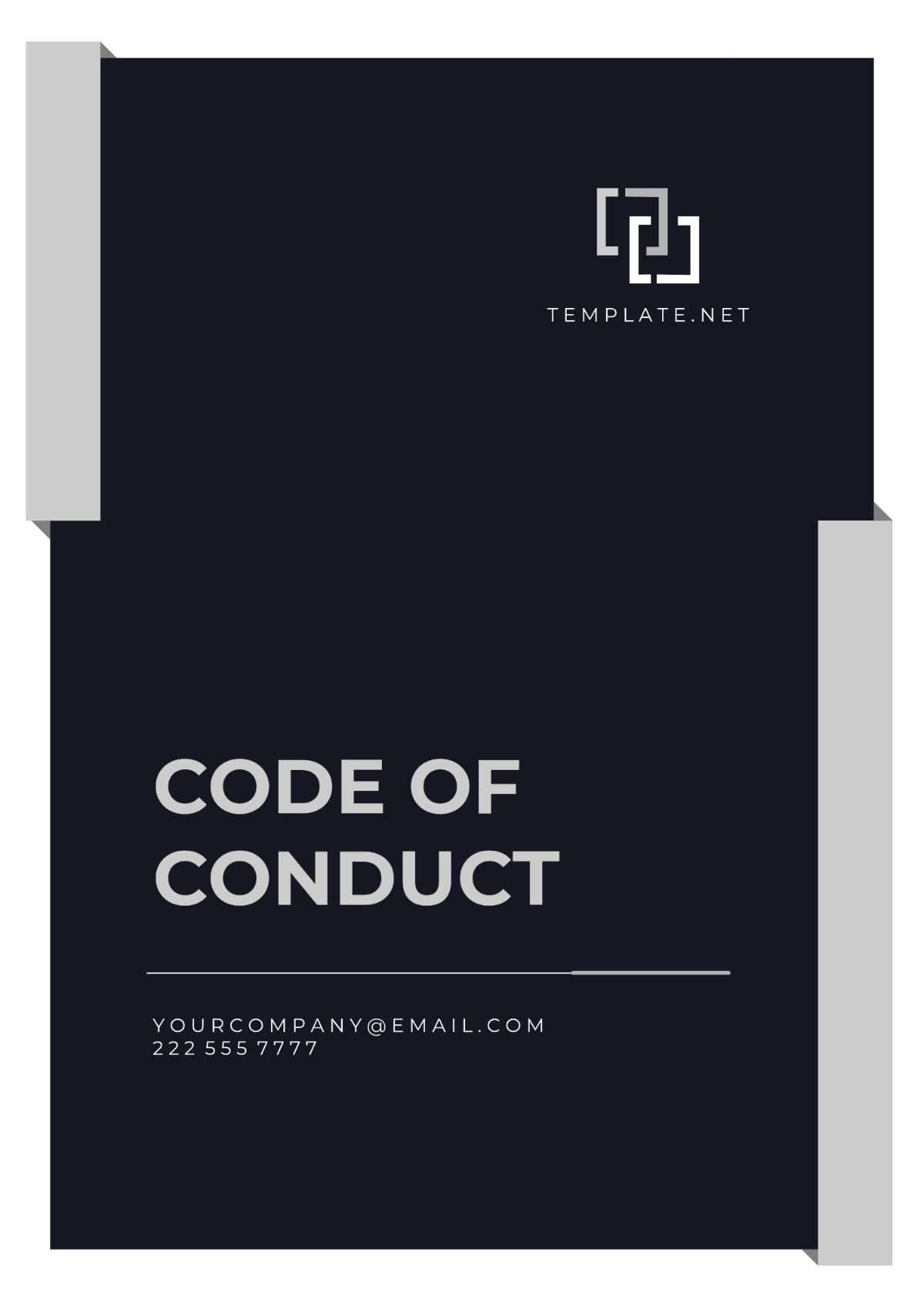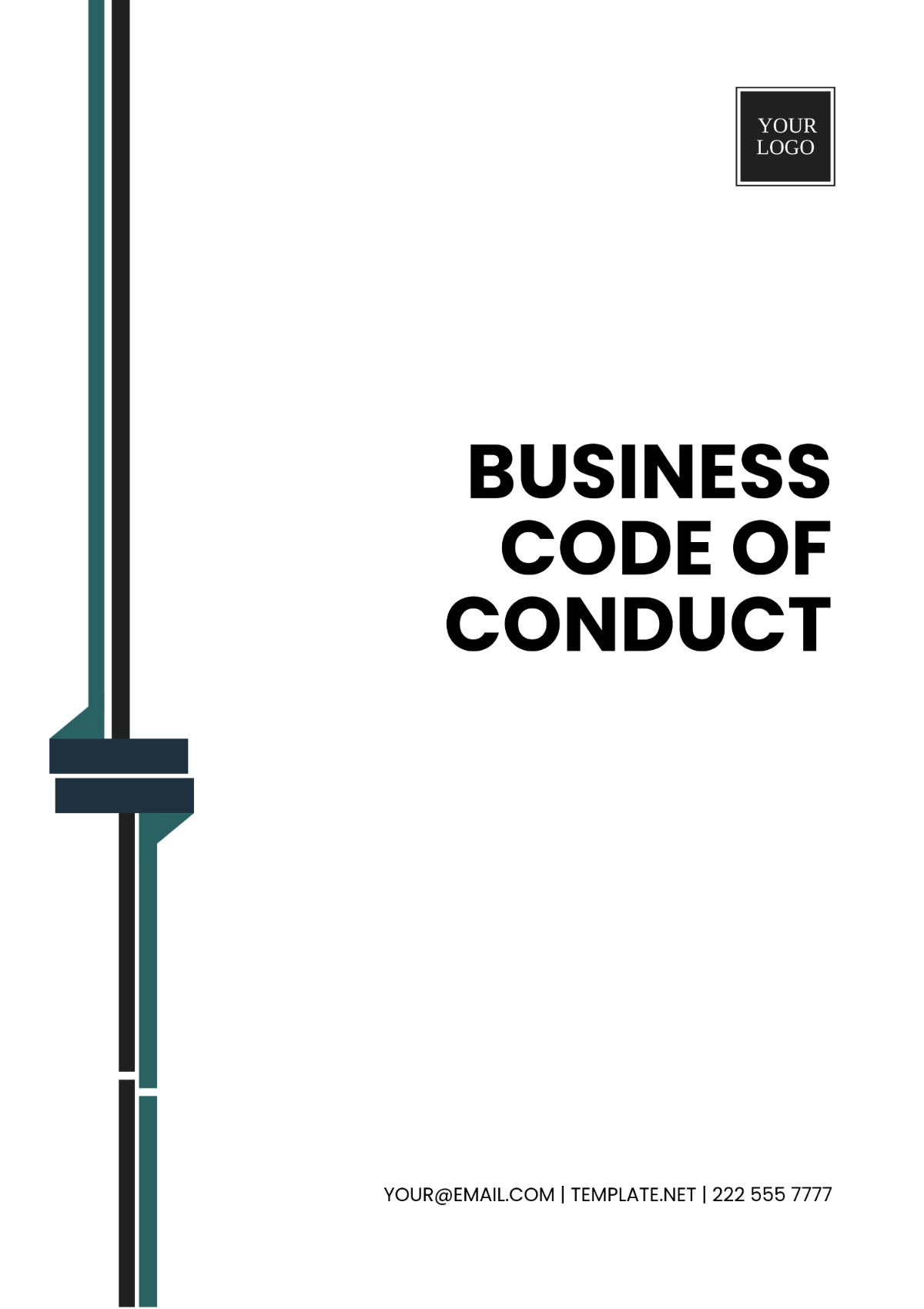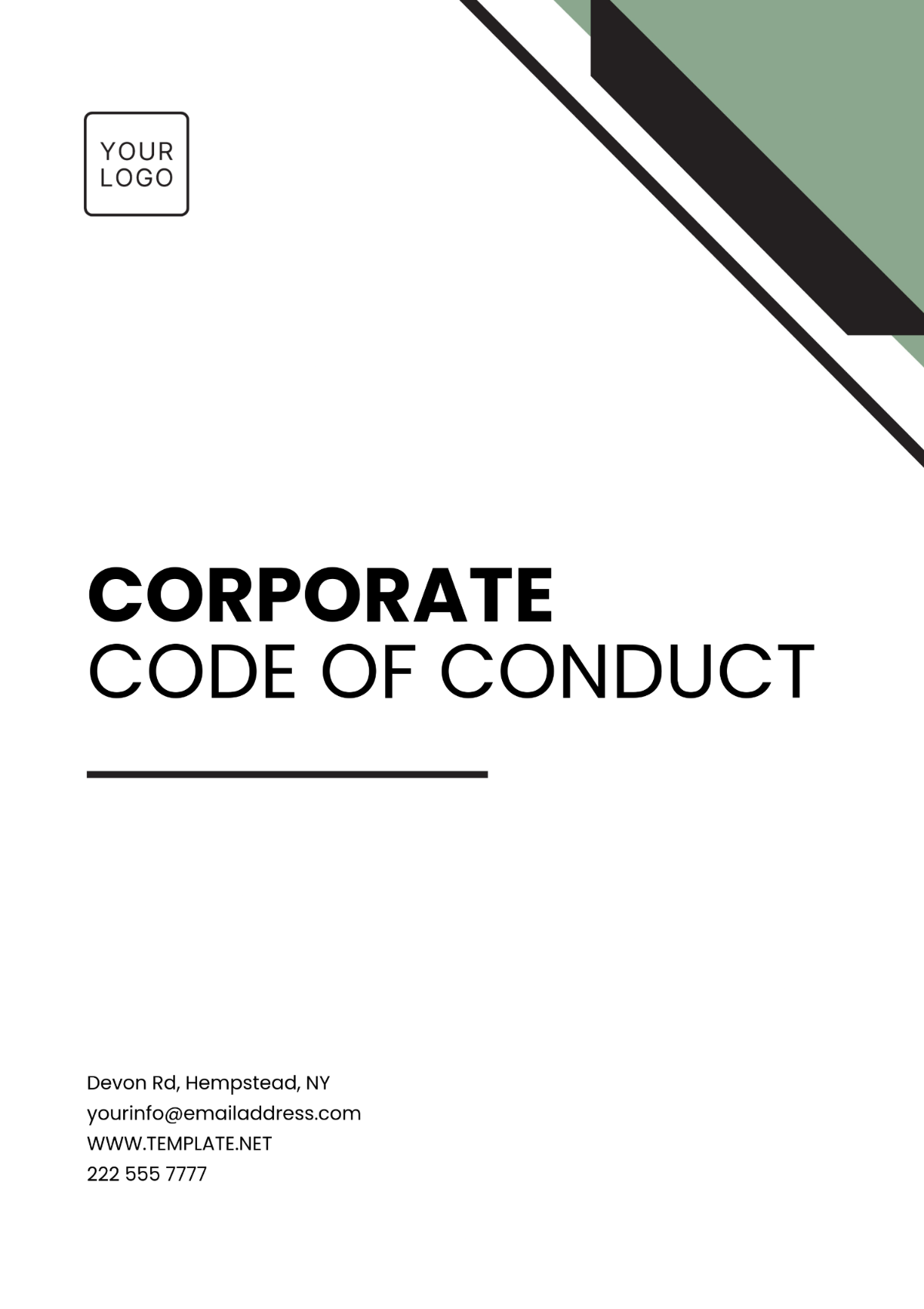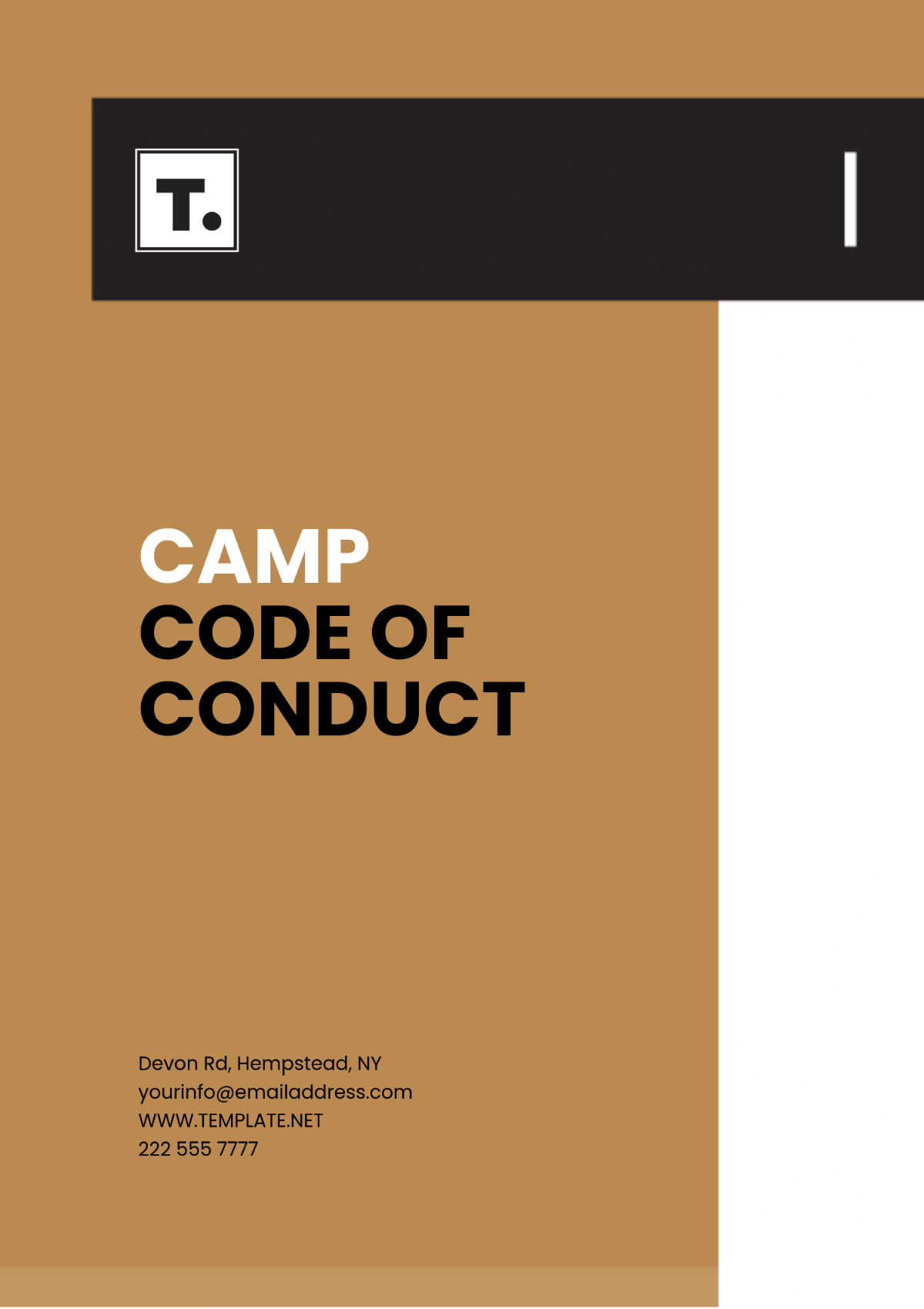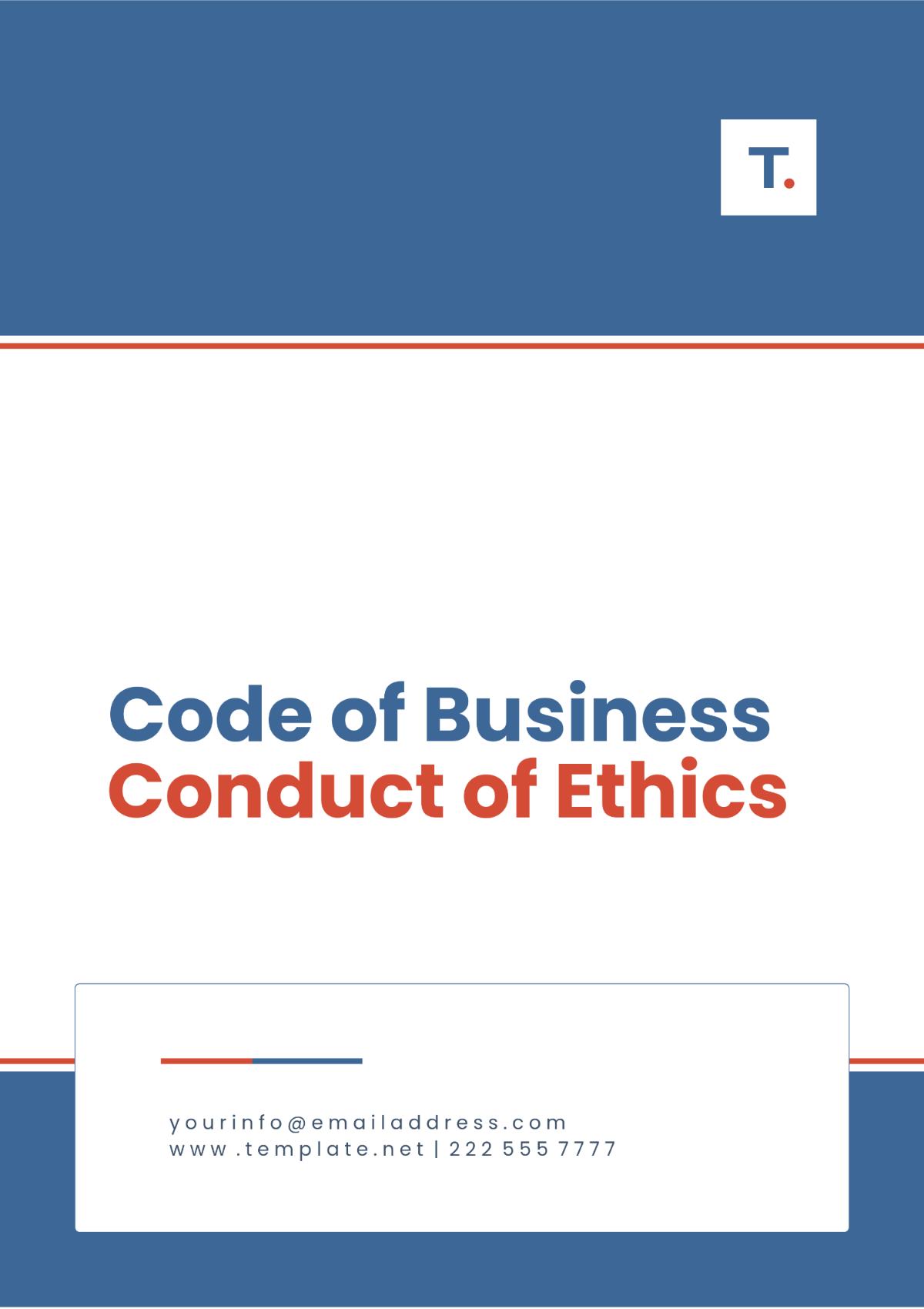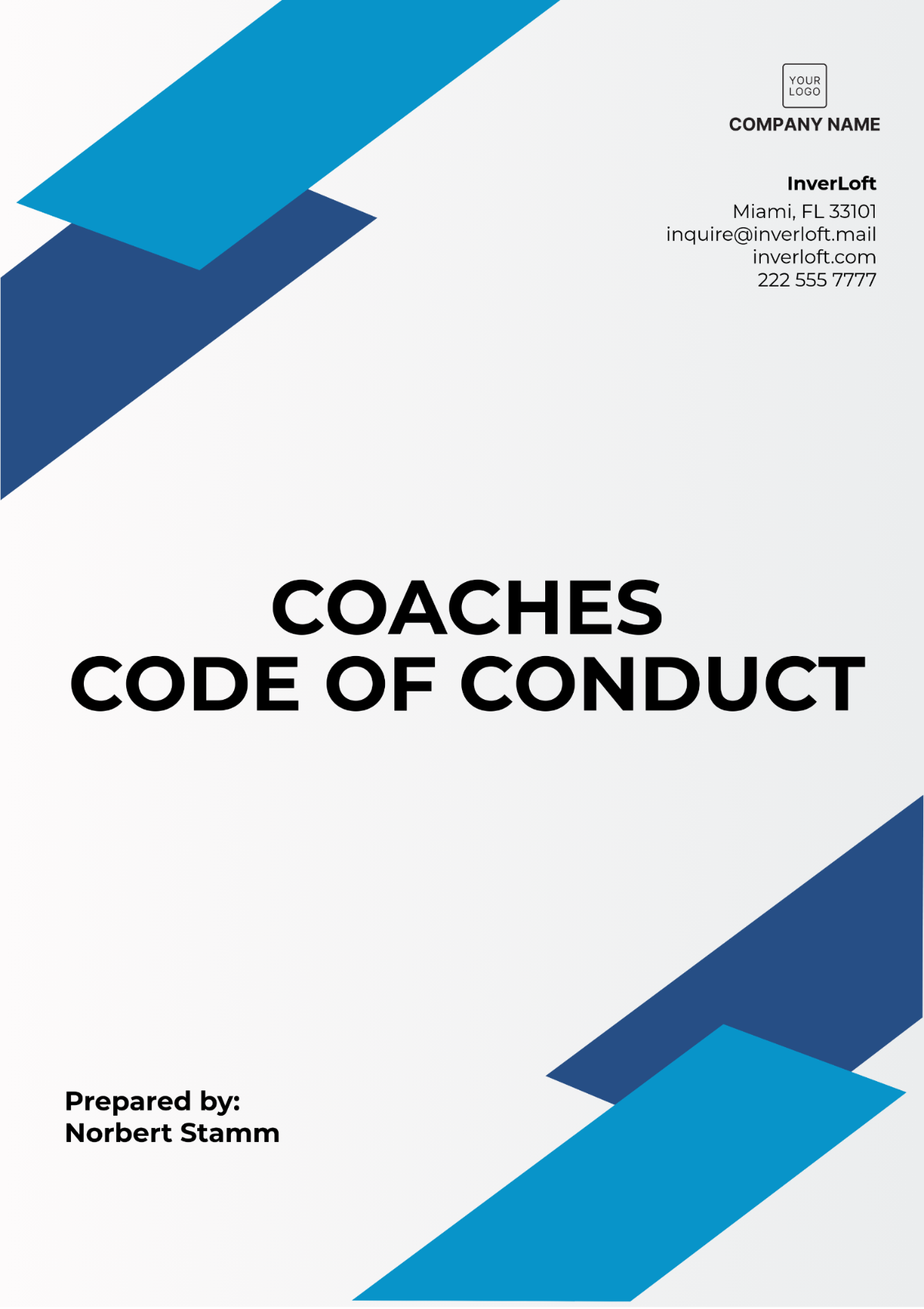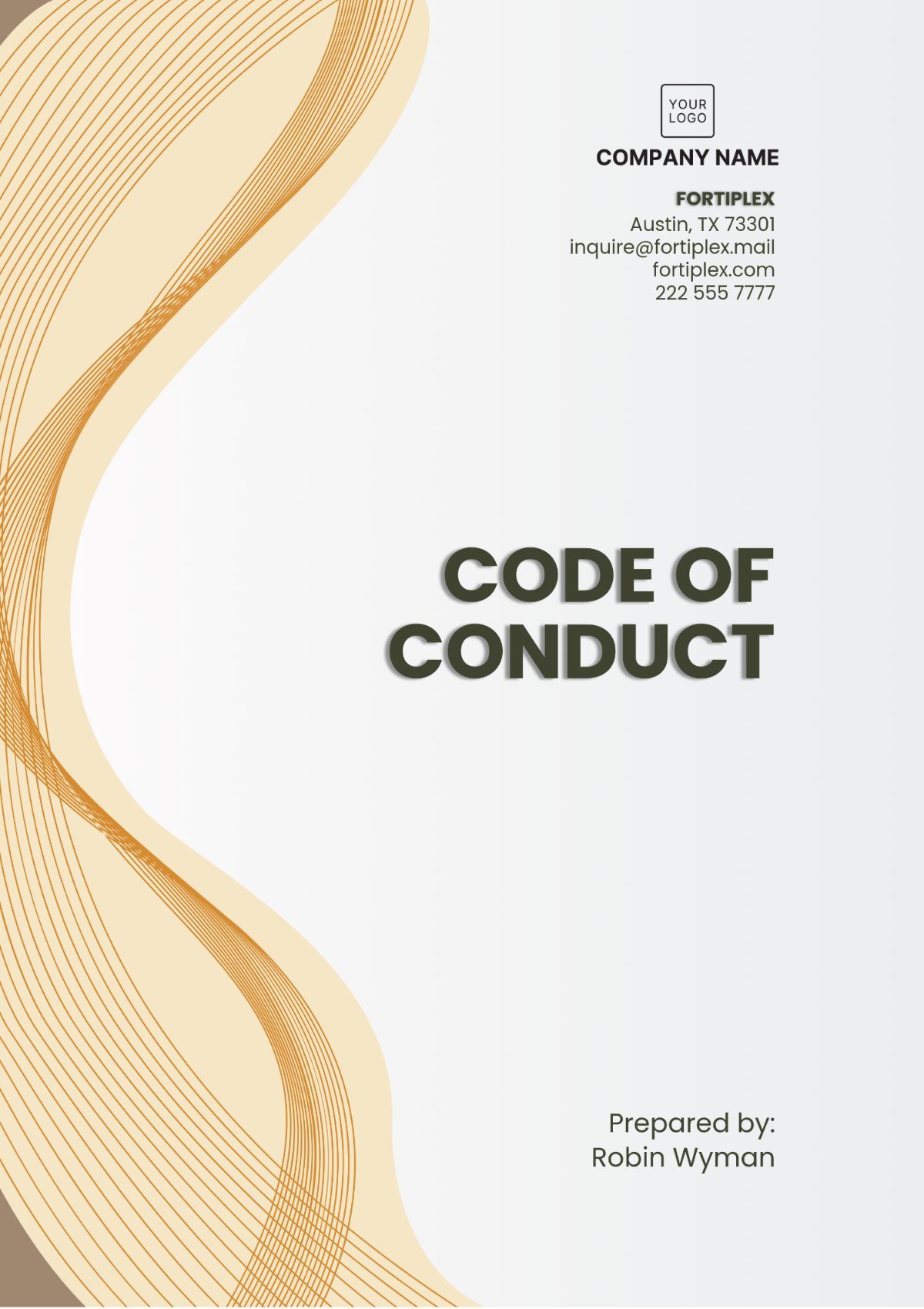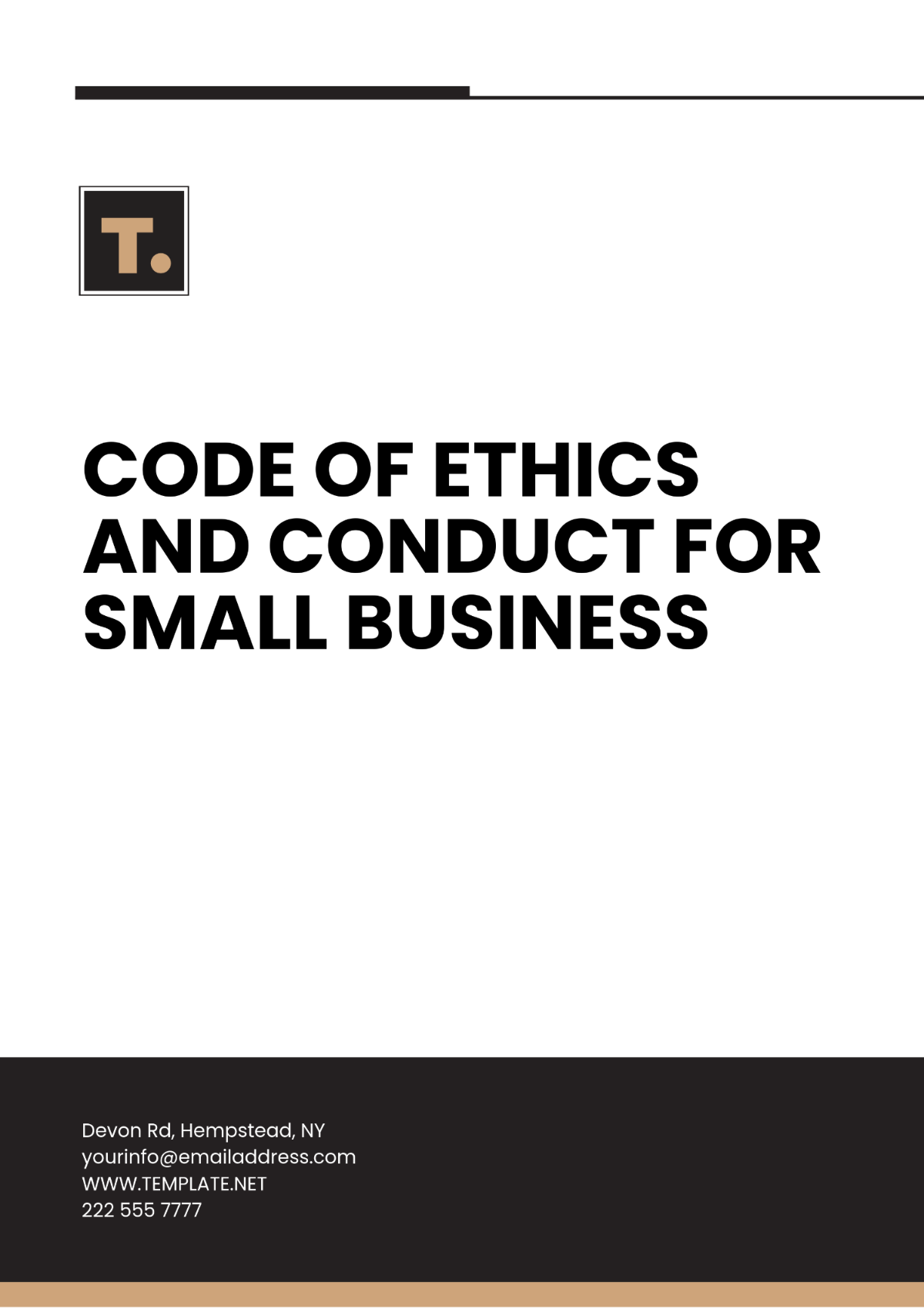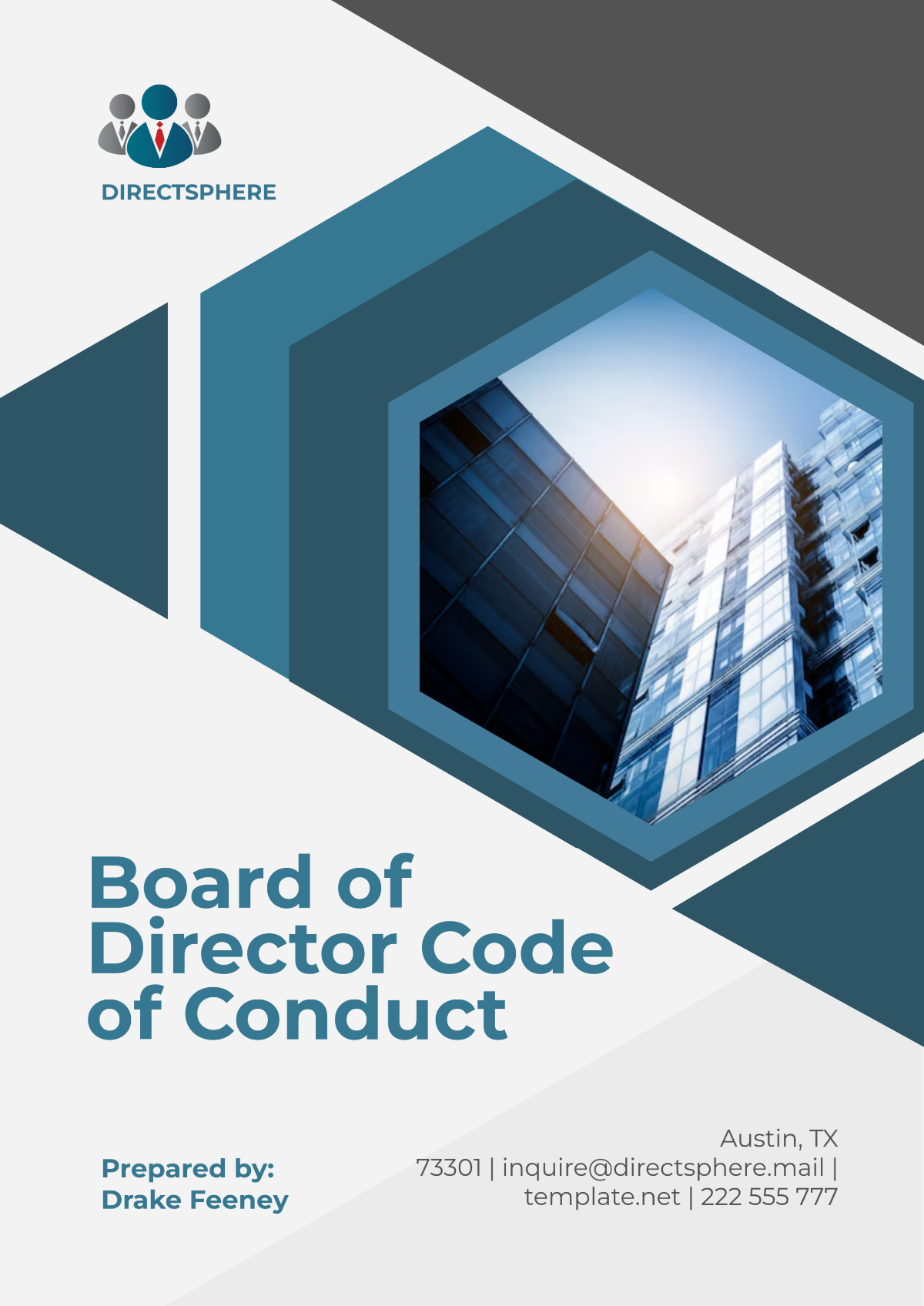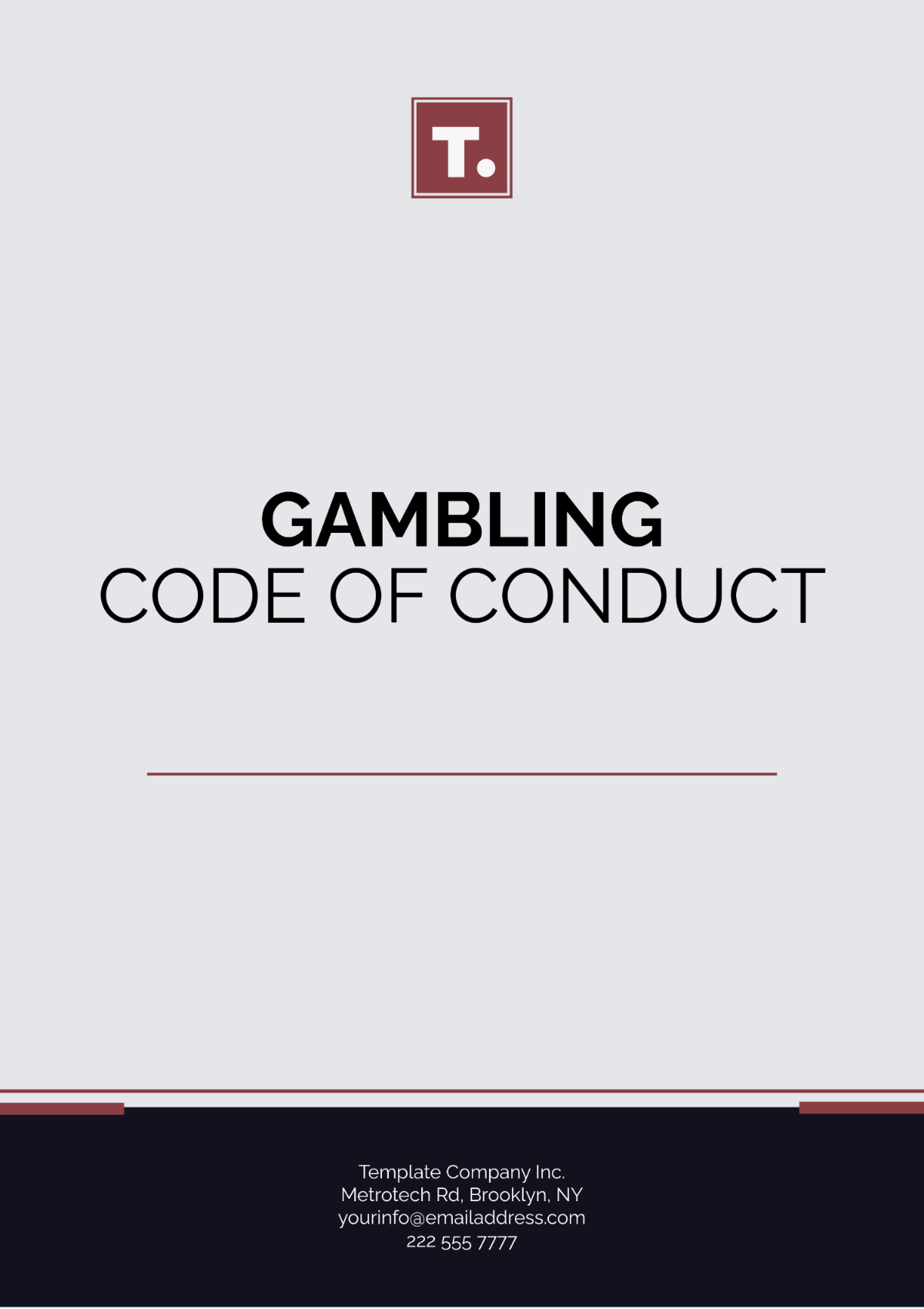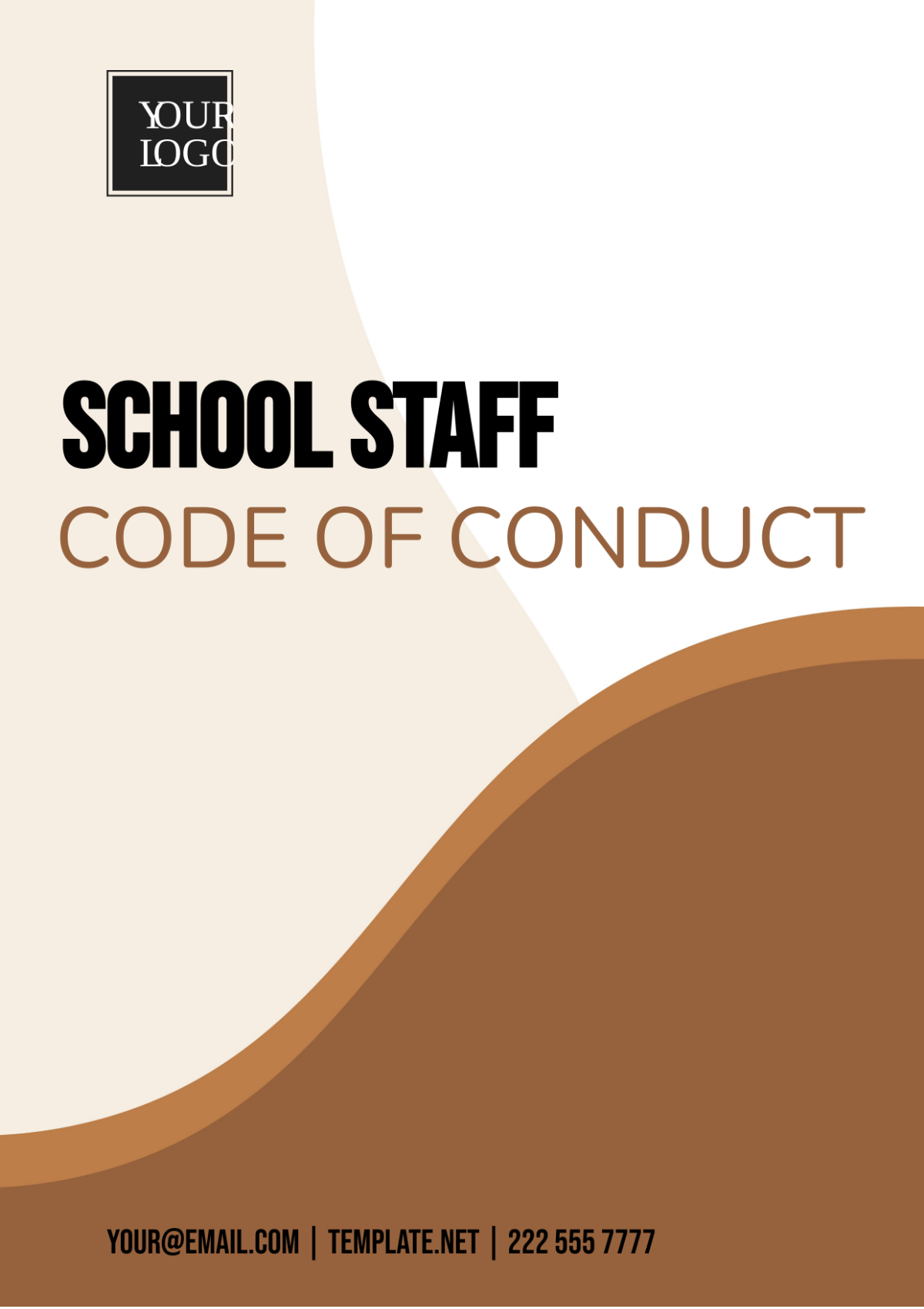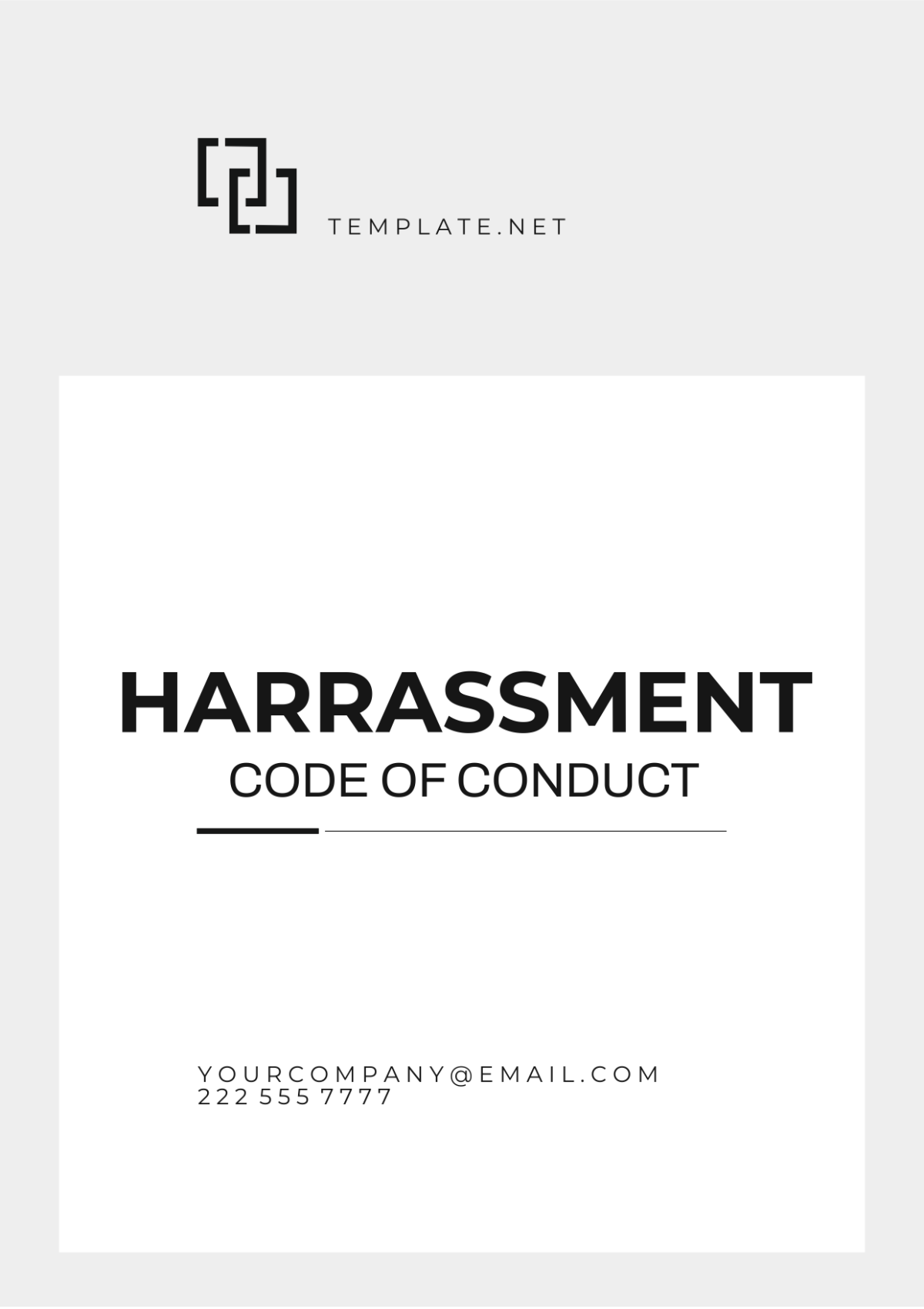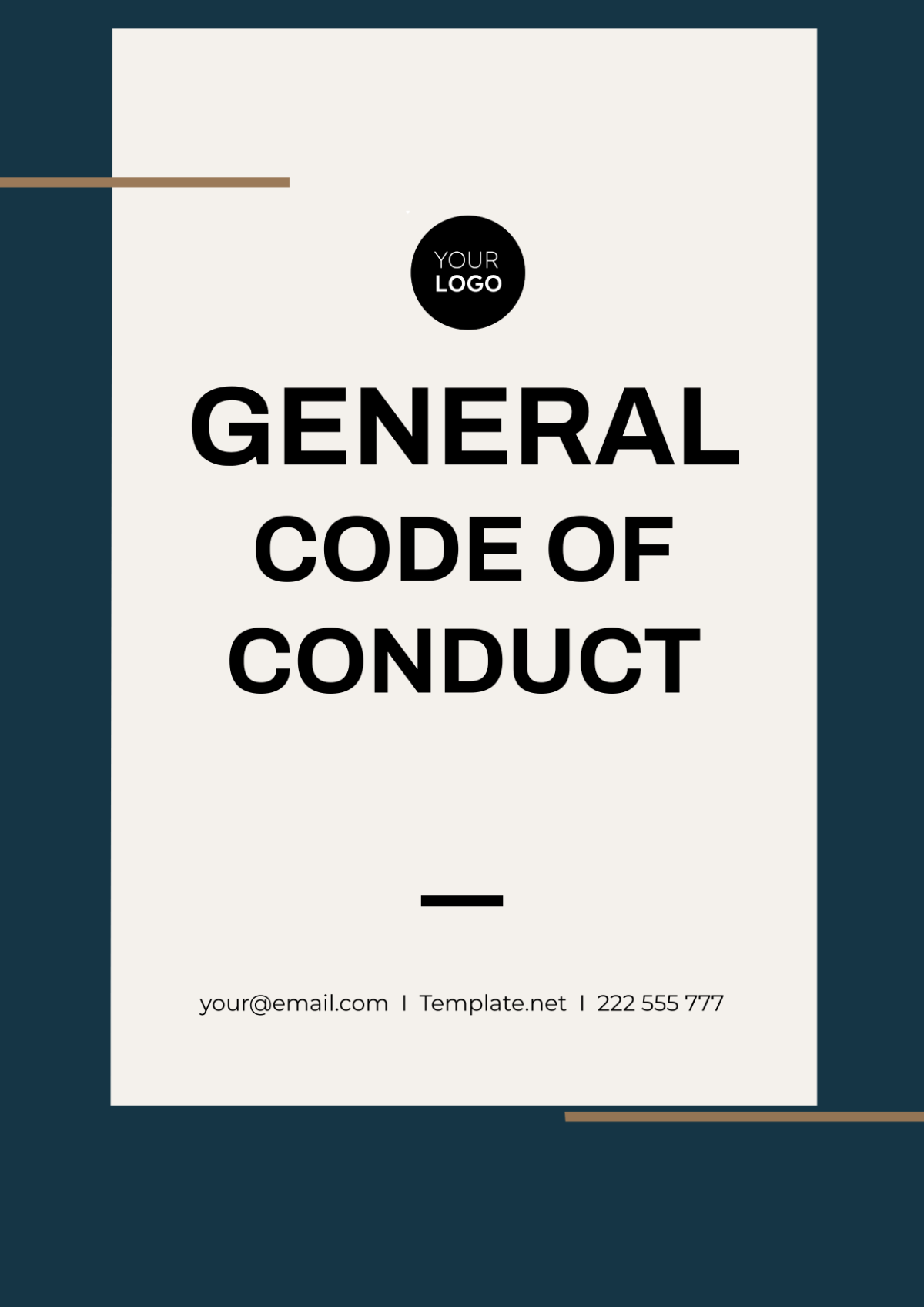Board of Trustees Code of Conduct
I. Introduction
Board of Trustees Code of Conduct for [Your Company Name]. This document serves as a guiding framework designed to ensure clarity, integrity, and ethical conduct among our esteemed board members. As stewards of [Your Company Name]'s mission and values, trustees play a crucial role in shaping our organization's future and fostering positive relationships with various stakeholders.
II. Purpose
This Code of Conduct is designed with the objective to:
Clarify the specific roles and responsibilities of each Board of Trustees member. This purpose clarifies the unique roles and responsibilities of individual board members, ensuring everyone understands their duties and obligations within the board structure.
Guide trustees in their interactions with each other, staff, donors, and other stakeholders: This purpose aims to guide how trustees should interact professionally and respectfully with fellow board members, organizational staff, donors, and other stakeholders, fostering positive relationships and effective collaboration.
Promote transparency, accountability, and ethical behavior in all board activities: This purpose emphasizes the importance of conducting board activities with transparency, accountability, and adherence to ethical standards, ensuring trust among stakeholders and upholding the organization's reputation and integrity.
III. Scope
The Code of Conduct herein applies to every individual serving as a member of the Board of Trustees at [Your Company Name]. All members must adhere strictly to the stipulations of this code, as compliance is obligatory. Should there be any breaches of this code, the offending party may be subject to disciplinary measures, which could include but are not limited to, removal from their position on the board.
IV. General Conduct
It is anticipated that the trustees will:
Maintain confidentiality of sensitive information: Trustees must safeguard confidential information related to the organization, including strategic plans, financial data, and proprietary information, to protect the organization's interests and maintain trust.
Act with honesty and integrity, avoiding conflicts of interest: Trustees should uphold high standards of ethical behavior by being truthful, and transparent, and avoiding situations where personal interests conflict with their duties to the organization.
Support the decisions of the board once a decision has been made: After decisions are made collectively by the board, trustees are expected to respect and support these decisions, promoting unity and effective implementation of agreed-upon strategies.
Participate actively in meetings and functions: Trustees are encouraged to engage actively in board meetings, discussions, and organizational functions, contributing their expertise and insights to decision-making processes.
Be respectful and fair in all dealings with others: Trustees should treat colleagues, staff, stakeholders, and others with respect, fairness, and professionalism, fostering positive relationships and a supportive organizational culture.
V. Conflicts of Interest
It is mandatory for trustees to:
Disclose Conflicts: Trustees must openly share any personal or business interests that conflict with their duties to the organization, ensuring transparency and awareness of biases.
No Personal Advantage: Trustees are obligated to refrain from exploiting their role in the organization for their benefit, ensuring that they avoid any actions or decisions that would provide them with advantages at the expense of the organization’s well-being and objectives.
No Unapproved Gifts: Trustees must not accept gifts from entities seeking business with [Your Company Name] without prior approval, preserving decision-making integrity and preventing conflicts of interest.
VI. Confidentiality and Privacy
Trustees are required to fulfill the following obligations:
Protect Confidential Information: Trustees must safeguard the organization's confidential and proprietary information from unauthorized access or disclosure.
Avoid Unauthorized Disclosure: Trustees should not share financial, strategic, or personnel details without the proper authority, ensuring sensitive information remains confidential.
Follow Privacy Laws: Trustees must comply with all relevant privacy laws and regulations concerning [Your Company Name]'s operations, maintaining the privacy and security of sensitive data.
VII. Meeting Conduct
All trustees are expected to engage in the following activities:
Prepare for Meetings: Trustees are expected to thoroughly review all materials pertinent to the topics of discussion before their meetings to effectively contribute to the discussions and ensure that each decision they make is well-informed.
Engage Respectfully: Trustees are expected to participate in meetings respectfully and constructively, fostering productive discussions and decision-making.
Listen and Consider: Trustees should actively listen to the views of others during discussions and take them into account when making decisions, promoting collaboration and inclusivity.
Be Punctual: Trustees must maintain punctuality for all board meetings and functions, respecting others' time and ensuring the efficient conduct of business.
VIII. Disciplinary Actions
Violations of this Code of Conduct can lead to disciplinary action, including but not limited to:
Verbal Warning: A formal verbal notification has been issued to inform the trustee about a breach and to stress the significance of compliance with the code.
Formal Censure: A written reprimand serves as a formal acknowledgment of a violation, effectively underscoring the gravity of the misconduct involved.
Temporary Suspension: A temporary removal of the trustee from participating in board activities as a consequence of a serious violation, pending further review or improvement.
Removal from the Board of Trustees: The permanent dismissal of the trustee from their position on the board due to repeated or severe violations of the code, reflecting the most serious consequence for non-compliance.
IX. Reporting and Compliance
To communicate any suspicions regarding violations of this Code of Conduct, trustees are urged to reach out via [Your Company Email]. It is important to note that all reported cases will be treated with strict confidentiality and will undergo a comprehensive investigation to ensure that all concerns are addressed appropriately.
X. Amendment of the Code
This Code of Conduct may be amended at any time by a majority vote of the Board of Trustees. All members will be notified of changes and are encouraged to review amendments immediately.
For more information about the governance and operations of the Board of Trustees, please contact: [Your Company Email] or visit [Your Company Website].
